
Sustainable Development Report 2022

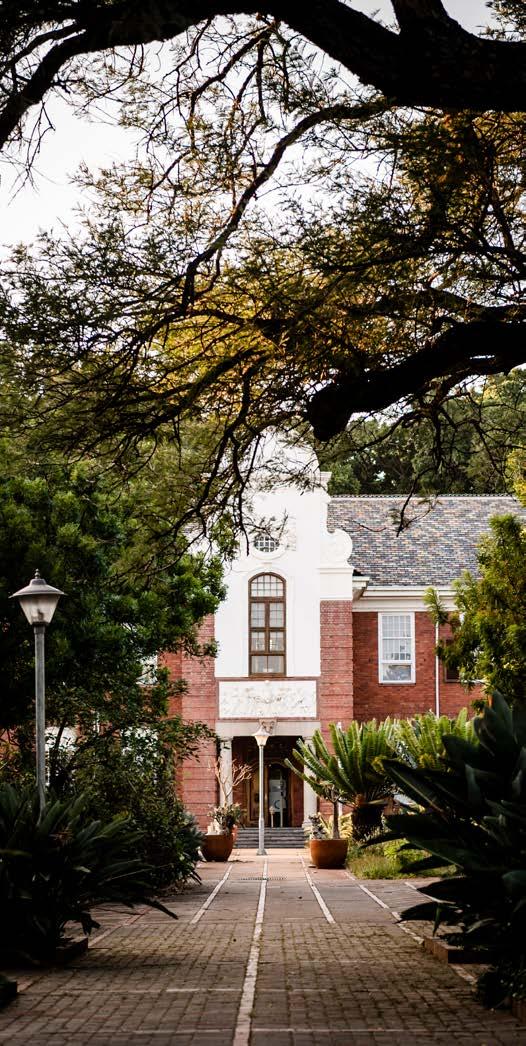

C O N T E N T S Introduction University profile 03 UP at a glance 04 About this report 08 Perspectives from 11 Professor Themba Mosia From the desks of Professors 13 Sunil Maharaj and Loretta Feris Our strategic intent Our living strategy 16 A strategic approach to teaching, 18 learning and research Engaging with stakeholders for 23 mutual benefit Translating our strategy into action Operational sustainability 26 People practices for sustainable 27 development Towards the resilient graduate 32 Towards a resilient campus 38 UP as an anchor institution 46 Driving sustainable development 49 through our core functions Setting the context 50 Sustainable economies 51 Life, our planet and technology 59 Inclusive societies and 70 capable institutions Transdisciplinary platforms 82 Collaboration and partnering 88 Concluding the conversation Consolidated alignment with 92 the SDGs Acknowledgements 98 click on a page number for fast navigation >
The is one of Africa’s top researchintensive universities, and through our core functions of research, teaching, learning and engagement, we develop people and create knowledge to meet current and future societal needs. Our quest for impact locally, on the African continent, and globally, is characterised by quality education, research that is relevant, and a focus on the grand and pressing societal challenges facing humanity.
UNIVERSITY PROFILE
UP has nine faculties and a business school, the Gordon Institute of Business Science (GIBS), spread over seven campuses. Overall, UP has 120 academic departments, accommodating some 54 000 students and offering 1 175 study programmes. Recognising our connectedness to society and the need to embed a spirit of citizenship in students coming through the University, 355 study modules involve community work. Our 82 centres and institutes are at the frontiers of research across the spectrum of mono-, multi-, inter- and transdisciplinary work.

We seek to develop resilient graduates who are enquiry-led, with the ability to adapt and bounce back from the inevitable shocks and adversity encountered in life. Lifelong learning is embraced and used to anticipate challenging circumstances, harness internal and external resources to navigate complexity, and continue to make a difference. Our graduates are sought after, with 97% of graduates being employed within six months of completing their studies. Over 300 000 UP alumni are spread across a broad global footprint of 118 countries.
In solving future challenges through impactful research, we cover the full spectrum of sustainable development through the themes of sustainable economies; life, our planet and technology; and inclusive societies and capable institutions. Building on demonstrated excellence at disciplinary levels, we have cross-cutting research focus areas such as agriculture and sustainable food systems; climate change, energy and water; One Health; and inequalities, social justice and human rights.
Our societal engagement spans local communities, through national, continental and global stakeholders, and across academic, government, industry and civil society sectors. Through our engagement, we seek mutually beneficial collaborations and partnerships underpinned by trust, and in pursuit of transformative societal development.
2022 Sustainable Development Report 3
Readiness and to
DELIVERING A FUTURE-FIT WORKFORCE WITH …

SHAPING THE FUTURE WITH …
SUCCESSFUL GRADUATES
NEW KNOWLEDGE
Transdisciplinary research Collaborative partnerships
Collaborative platforms co-create new knowledge that translates into solutions. Recent additions include:
Engineering 4.0 – a collaborative hub for Smart Cities and Smart Transport Future Africa Institute – a dedicated campus for transformative research relevant to Africa's development
Innovation Africa @UP – integrating natural and agricultural sciences, technology and innovation
Javett-UP Art Centre – focuses on the importance of Africa and its art
First for Africa
• African Global University Project –develops young intellectual leaders with a global outlook


• InnoFoodAfrica Project – focuses on enhancing food and nutrition security in Africa
• Alliance for African Partnership –develops entrepreneurs and business initiatives (with Michigan State University)
• United States-South Africa Higher Education Network Project –promotes exchanges and collaborative research between UP, Rutgers University-Newark and the University of Venda
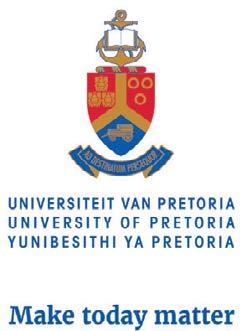
93% EXAMINATION PASS RATE
UP has the first portable emissions measurement system in Africa to help set realistic carbon emission targets
97%
• United Nations Children’s Emergency Fund – supports the JuniorTukkie programme, which helps learners make a successful transition to higher education through digital learning

Make today matter www.up.ac.za
optic (PreUA) –those socio tertiary
A WIDE ACADEMIC OFFERING QUALITY EDUCATION
Unless indicated to the contrary, all statistics are provided by the University of Pretoria’s Department of Institutional Planning and are valid as at August 2022.
The traditional SA university with the most
• Academic staff with PhDs (70%)
• NRF-rated researchers (613)
• Students enrolled (53 912)
2022 THE Impact Rankings
According to the latest Times Higher Education Impact Rankings (2022), released in May 2022, the University of Pretoria was named South Africa’s second-best (joint second) and Africa’s third-best (joint third) university.
UP falls in the top 1% internationally in 13 fields:
• Agricultural Sciences
• Biology and Biochemistry
• Molecular Biology and Genetics
• Pharmacology and Toxicology
• Chemistry
• Clinical Medicine
• Economics and Business
QS World
Rankings rate UP #1 in South Africa for
• Veterinary Science
• Accounting and Finance
• Economics and Econometrics
• Mechanical, Aeronautical and Manufacturing
• Engineering
• Electrical and Electronic Engineering2
• Engineering
• Environment/Ecology
• Immunology
• Microbiology
• Plant and Animal Sciences
• Social Sciences1 #33 in the world for Mineral and Mining Engineering
Among the world’s top universities in 20 subjects
Times Higher Education ranks UP #1 in South Africa for industry, innovation, and infrastructure #1 in South Africa for Computer Science3

HAS 9 FACULTIES AND 1 BUSINESS SCHOOL
CREATING A FUTURE-FOCUSED UNIVERSITY WITH ... PREPARING FOR THE FUTURE WITH ... UP
Economic and Management Sciences Education Engineering, Built Environment and Information Technology Health Sciences Humanities Law Natural and Agricultural Sciences Theology and Religion Veterinary Science Only faculty of its kind in South Africa Gordon Institute of Business Science
TOP 1% IN THE WORLD
4 Centres of Excellence 51 Research Chairs 82 Research Institutes and Centres 1 175 Study programmes 120 Academic departments
References 1. Web of Science Essential Science Indicators 2. 2022 Quacquarelli Symonds (QS) World University Rankings by Subject 3. THE Impact Rankings for 2021 4. THE Impact Rankings for 2021 5. UK Financial Times (FT) executive education rankings 6. 2021 Graduate Destination Survey, Department of Institutional Planning
University
IMPACTFUL RESEARCH THINKING GLOBALLY
3 000 x 223 x 70 x 6
UP collaborates with over 3 000 institutions with 223 international partnerships across 70 countries and six continents
Ranked among Top 50 universities in the world4
Ranked among Top 100 universities in the world4
SDG 15: Life on Land (#30)
SDG 8: Decent Work and Economic Growth (#44)
Ranked among Top 50 business schools in the world
At #43, GIBS is among just 15% of around 300 leading business schools globally that vie for a top-50 position5
Future-focused partnerships
• With Advance.io to develop an information hub to support the digitalisation of the agriculture and forestry industry
SDG 17: Partnership for the Goals (#86)
Relevant research
• Produced unique nanobodies for use in rapid tests and as a therapy for COVID-19
• Part of an international team of researchers studying the ‘eating habits’ of black holes
• Member of the Event Horizon Telescope team, which revealed new evidence to help us
Unique positioning
The Faculty of Veterinary Science at Onderstepoort remains the best in Africa with a number of milestone procedures:
• First successful CT scan performed on a live adult rhino
• Ground-breaking surgery on a filly suffering from an upper airway restriction
SDG 9: Industry, Innovation, and Infrastructure (#88)
An African global university
• Designated as the first WHO Collaborating Centre in Africa (for the prevention of deafness and hearing loss)
• Only university in Africa to be part of the University Social Responsibility Network
• Hosted the first Nobel Prize Dialogue in Africa
understand how magnetic fields behave around black holes
• Part of an international team that discovered a potent chemical compound that could possibly treat and even eliminate malaria
Research focus areas
• Agriculture and sustainable food systems
• Climate change and the environment
• A partial knee replacement on a cat to save its right leg from being amputated
• Specialised heart surgery on two dogs
• With Exxaro Resources to establish a Chair in XR Technology to address mining industry challenges and identify the best available technologies for the solutions
• Invited to join the prestigious Worldwide Universities Network, a global higher education network of 24 leading comprehensive research universities
• Launched South Africa’s first exclusive Diabetes Research Centre at a public academic institution
• Economic development and sustainable futures
• Energy
• Heritage studies
• Inequalities, Social Justice and Human Rights
• One Health
• Smart infrastructure and innovation
• Water
A-rated researchers, recognised as leading international scholars in their field
SOLVING FUTURE CHALLENGES THROUGH …
FOCUSING ON TOMORROW’S SUCCESS BY …
17
312 827
Number of UP alumni spread across 118 countries
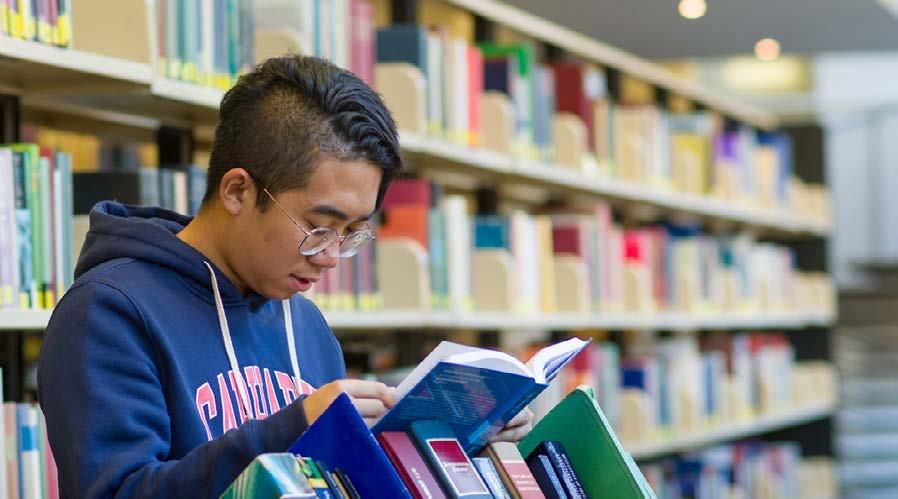
First in Africa
• To implement Blackboard Ally to make digital courses more accessible to all students
• To introduce a chatbot to enhance student mental health and wellbeing
Ready to help
NEW KNOWLEDGE
355
Study modules that involve community work
Socially responsible
UP is the only representative from Africa in the University Social Responsibility Network, an international group of 16 top universities
High Performance Centre
Nurtures some of Africa’s greatest athletes, including recent Olympic medallists
Ready to work
• Recognised by the South African Graduate Employers Association (SAGEA) for the Best Work Readiness Programme
• Centre for Entrepreneurship supports existing entrepreneurs and develops youth entrepreneurship
• Centre for the Future of Work researches new ways of working to create future-fit world graduates
Strong learning support
• FLY@UP – ensures students can graduate in minimum time
• FLYHIGHER @UP – improves postgraduate success rate
• Social learning spaces – mimic real-world work and social environments

• Connected campuses – fibre optic connectivity across all campuses


• Pre-University Academy (PreUA) –targets talented learners and those with potential from different socio economic classes to pursue tertiary education. Learners acquire 4IR skills, learn how to integrate knowledge and are exposed to university facilities and teaching
Transdisciplinary research
Collaborative platforms co-create new knowledge that translates into solutions. Recent additions include:
Engineering 4.0 – a collaborative hub for Smart Cities and Smart Transport Future Africa Institute – a dedicated campus for transformative research relevant to Africa's development Innovation Africa @UP – integrating natural and agricultural sciences, technology and innovation Javett-UP Art Centre – focuses on the importance of Africa and its art
First for Africa
UP has the first portable emissions measurement system in Africa to help set realistic carbon emission targets
Collaborative partnerships
• African Global University Project –develops young intellectual leaders with a global outlook
• InnoFoodAfrica Project – focuses on enhancing food and nutrition security in Africa
• Alliance for African Partnership –develops entrepreneurs and business initiatives (with Michigan State University)
• United States-South Africa Higher Education Network Project –promotes exchanges and collaborative research between UP, Rutgers University-Newark and the University of Venda
• United Nations Children’s Emergency Fund – supports the JuniorTukkie programme, which helps learners make a successful transition to higher education through digital learning
SHAPING THE FUTURE WITH …
ABOUT THIS REPORT
The University of Pretoria is cognisant of the important role that it plays in sustainable development, and its contribution to the protection and strengthening of systems in the complex and interconnected domains of nature and society. Furthermore, we are mindful that such contributions need to be step change in character, moving beyond incremental progress over time.

The need for transformational change is particularly relevant in the South African context, with its pressing challenges of poverty, inequality and unemployment. Over the past year, these have not been ameliorated, and indeed continue to be brought more sharply into focus with economic uncertainty, political instability, breakdowns in social cohesion, and the ongoing COVID-19 pandemic.
We see our contribution to sustainability as twofold. Firstly, through the way we function and conduct ourselves as an institution as we interact with a range of stakeholders, create the conditions for people within the University community to thrive, demonstrate stewardship over the natural resources under our care, and contribute to the cohesion and upliftment of our host communities. We refer to this as operational sustainability. Secondly, in fulfilling our purpose as a higher education institution, we contribute more broadly to sustainability through our work in the core functions of teaching, learning, research and community engagement. The capability we build through undergraduate and postgraduate education, and the new knowledge we create from research, both contribute to meeting needs and expectations for just and inclusive societies, and to protecting our planet for future generations.
In seeking to achieve the required step change, our starting point was to align our institutional strategic intent to societal needs and aspirations, as represented by South Africa’s National Development Plan (NDP), the African Union Agenda 2063, and the United Nations’ Sustainable Development Goals (SDGs). Seeing ourselves as an agent for the public good, has enabled us to intentionally integrate and hardwire sustainability into the University of Pretoria Strategic Plan: Destination 2026 and Beyond, and mainstream sustainability thinking and practices across all facets of the University. This integrated approach creates leverage and amplifies our impact and contributions towards a better country, continent, and world.
2022 Sustainable Development Report 8
Reporting boundaries
In this report we reflect on our strategic approach to sustainable development, our actions and performance in relation to operational sustainability, and the contributions we make to broader societal impacts through our core functions. Together, these shape the primary subject boundaries of the report.
We report on activities for the period 1 January 2022 to 31 December 2022. Activities considered include those undertaken solely by the University, as well as those within partnerships or collaborations where UP plays an active and material role in the activity.
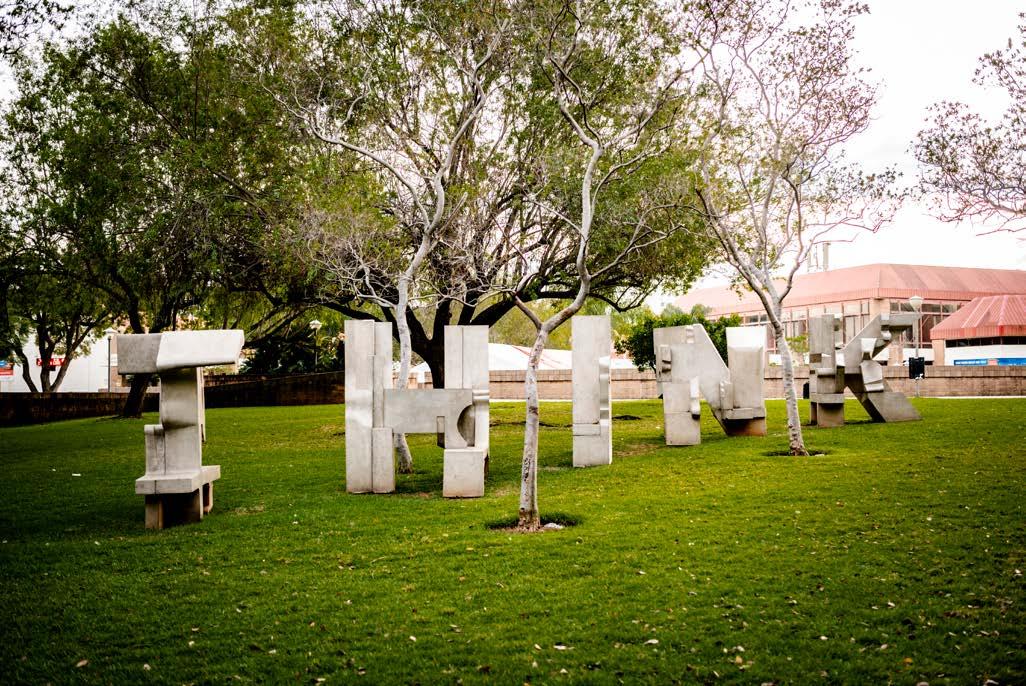
In keeping with previous reports, we reflect on the alignment and relationship of our activities to the SDGs.
Approach to developing the report
This report builds on our two previous Sustainable Development Reports, and represents a progressive evolution of our reporting. While the architecture remains the same, a key feature of the report is a shift away from narrative focusing on our conceptual thinking and approaches, which have been extensively addressed in previous reports, to incorporating more tangible stories and examples of how we are giving expression to our strategy.
Process owners such as faculty and entity leadership selected content for inclusion in the report. Institutional level data was sourced from the Department of Institutional Planning, to ensure its accuracy and consistency with the UP Annual Report.
“The capability we build through undergraduate and postgraduate education, and the new knowledge we create from research, both contribute to meeting needs and expectations for just and inclusive societies, and to protecting our planet for future generations.”
2022 Sustainable Development Report 9
Outline of the report
The 2022 Sustainable Development Report follows a similar basic architecture to the 2020/21publication, as shown below.
INTRODUCTION
OUR STRATEGIC INTENT
TRANSLATING OUR STRATEGY INTO ACTION END
University of Pretoria
Our strategic approach to sustainable development
University profile
About this report
Leadership messages
Our living strategy
A strategic approach to teaching, learning and research
Engaging with stakeholders for mutual benefit
Operational sustainability
People practices for sustainable development
Towards the resilient graduate
Towards a resilient campus
UP as an anchor institution
Driving sustainable development through our core functions
Concluding the conversation
Setting the context
Sustainable economies
Life, our planet and technology
Inclusive societies and capable institutions
Transdisciplinary platforms
Collaboration and partnering
Consolidated alignment with the SDGs
Acknowledgements
Contact us
The report is made up of four sections: introductory chapters on the University profile and the current report; an articulation of our strategic intent for sustainable development; translating the strategy into action; and a concluding section.
Content within this report is fully congruent with information published in the University’s 2022 Annual Report.
2022 Sustainable Development Report 10
PERSPECTIVES FROM PROFESSOR THEMBA MOSIA

Our vision and aspiration of becoming a leading research-intensive university in Africa, recognised internationally for its quality, relevance and impact, and also for developing people, creating knowledge and making a difference locally and globally, compels us to engage with contemporary, emerging and future societal concerns and priorities. We are actors in broader society, and a national asset that is interconnected with society. Our fundamental role therefore, and indeed our purpose, is to contribute to the advancement of South Africa, Africa and the world.
Our commitment to sustainable development is central to the meaningful impact we seek. Addressing the legacies of our appalling past, along with resolute efforts towards a shared future that is characterised by a just and inclusive society, are integral to our institutional goals. At the same time, demonstrating respect for our planetary boundaries, and tangibly influencing the protection and renewal of our planet is essential for our continued human existence. Collectively, these describe our expected societal contributions, and at the heart of it, this is a sustainable development conversation.
In our previous report, we reflected on how we had hardwired sustainable development into our institutional strategy. Our rationale was twofold. Integrating sustainability into our highest level strategy gives full expression to our identity, to who we are, and to what we believe in. Additionally, we believe that through this integration, we will create the necessary leverage for the step change in societal impact expected of all universities.
In this year’s report, we focus on how our strategy is “alive” and continues to evolve as we translate it into action. Having a “working strategy” which does not deviate from our core tenets, but is sufficiently responsive to changing internal and external circumstances is a necessity. Our landscape is dynamic, and navigating changing circumstances is a hallmark of our resilience. Furthermore, as an institution of learning, we need to be at the forefront of institutional learning, in both our thinking and our practice.
2022 Sustainable Development Report 11
Prof Themba Mosia Interim Vice-Chancellor and Principal
The active enhancements that we reflect on in this report, are primarily from learning through implementation as the strategy has been translated into locally relevant plans at faculty and departmental levels. This has been made possible by our framework approach to strategy, which establishes a common language and intent, and creates pathways for us to take ideas and innovations from one part of the University, and transfer them for adoption and adaptation to other areas.
As we go forward, and as the urgency for accelerated impact for sustainable development increases, we continue to strengthen our resolve for sustainable futures. While commitment is a necessary starting point, our ability to learn in an ongoing and iterative way will be key to accelerating impact. We anticipate that this will be a defining characteristic of next-generation universities which, as institutions of learning also demonstrate meaningful institutional learning.

2022 Sustainable Development Report 12
“Our landscape is dynamic, and navigating changing circumstances is a hallmark of our resilience. Furthermore, as an institution of learning, we need to be at the forefront of institutional learning, in both our thinking and our practice.”
FROM THE DESKS OF PROFESSORS SUNIL MAHARAJ AND LORETTA FERIS
As our sustainability reporting continues to evolve, it remains anchored in its dual purposes as a report to society, and as our internal report card. Being an integral part of, and key institution of society, we seek to present an honest reflection of who we are and the nature of our societal contribution. Using it as our own report card, we continue to take stock of ourselves – our successes and opportunities to improve – in our pursuit of excellence and meaningful societal impact.
Our reports have reflected different stages of our maturation journey. Our 2019 report, in large part, introduced the University of Pretoria to the world, and the philosophical thinking that underpinned our approaches to sustainable development. The 2020/21 report explored in more detail the structures which give expression to sustainability through our core functions. In this report, we have shifted to telling our stories on what our approaches look like in practice.
In our previous reports, we also highlighted three key areas of leverage as we implemented our strategy: strengthening an integrated approach; relentlessly driving a transdisciplinary agenda; and establishing a culture of innovation and entrepreneurship across all University functions.
Prof Loretta Feris Vice-Principal:

In 2022, a prevailing theme for the year was strengthening our integrated approach. This is premised on the idea that a common approach across the many parts that make up our institution, yet with sufficient room for different faculties and departments to retain their identities and creativities, serves as a precursor to coherent and
 Academic
Prof Sunil Maharaj
Academic
Prof Sunil Maharaj
2022 Sustainable Development Report 13
Vice-Principal: Research, Innovation, and Postgraduate Education
complementary action, synergy, and amplification of impact. This is analogous to an orchestra or a jazz band made up of many different instruments, all playing their unique and different part to make up a whole that is greater than the sum of the individual instruments.
A key focus was on strengthening the interfaces between, and integrated approach to the core functions. This is in recognition of their mutual interdependencies and reinforcing effects, making congruence across the core functions far more powerful than their working as discrete silos. Additionally, efforts continued to be made towards breaking silos and softening boundaries within and across faculties and departments, to increase collaboration and the emergence of new ideas, initiatives and knowledge.
The theme of integration runs through the entire report, from our strategic intent and progress in integrated thinking, to the stories we showcase and which represent integrated doing across our core functions and across different politico-legal, social, economic and environmental ecosystems.
We remain confident in the path we have committed to, and this is validated in the highlights we report on, our demonstrated achievements in quality education and impactful research, and our trajectory of improvement in various sustainability-related ranking systems. We thus remain resolute in our commitment and approach, and will continue to learn and improve in our quest for meaningful societal impact.

2022 Sustainable Development Report 14
“The theme of integration runs through the entire report, from our strategic intent and progress in integrated thinking, to the stories we showcase.”
OUR STRATEGIC INTENT

OUR LIVING STRATEGY
The detail of, and process towards developing the University of Pretoria’s five-year strategy, Destination 2026 and Beyond, were extensively reported on in our . At the heart of this strategy, we have conceptualised the University as a societal agent for the public good, where we exist because of society and function for the good of society. This is inherently a sustainable development conversation and, as previously discussed, it set the scene for hardwiring sustainability into the institutional strategy for an integrated approach to both institutional and societal success.

During the year under review, Destination 2026 and Beyond functioned as a living strategy. It was cascaded and translated through all faculties and departments, enabling the development of functionally relevant activities. At the same time, lessons from translation at faculty and departmental levels helped to clarify and strengthen aspects of the institutional strategy, particularly around mechanisms to enhance understanding and improve its implementation. In this two-way process, while the fundamental principles and thinking behind the strategy did not change, the framework enabling its effective translation was continually enriched.
A key challenge identified early in the process was that the strategic focus areas, formulated initially as a strategy map, did not demonstrate explicit alignment and line-of-sight to the five institutional goals. The first step in addressing this lack of clarity, was the development of critical pathways for the core functions of teaching, learning, and research. These were presented in our previous Sustainable Development Report, along with certain strategic focus areas that act as enablers to the core functions.
2022 Sustainable Development Report 16
Building on the idea of pathways, a critical enhancement during the year was applying the logic to the institutional goals, and developing “pathways to impact” for each goal. In this novel approach, linkages and dependencies between strategic focus areas were defined and mapped into critical pathways to enable greater understanding, enhanced coherence of action, and accelerated implementation towards achieving the goals. The pathways to impact for teaching, learning and research will be discussed in more detail in the following section of the report.
In the spirit of openness and shared learning, the integrated approach and strategy enhancements were presented as leading practice at various international forums such as Kyoto University in Japan and the Tsinghua University’s Higher Education global conference, which focused on exploring the new role of universities in a changing world. Our approach was also shared in the United Nations Academic Impact (UNAI) series of capacity-building workshops for universities and colleges around the world, designed to provide training and enhance skills related to implementing the UN’s 2030 Agenda for Sustainable Development.

2022 Sustainable Development Report 17
“Building on the idea of pathways, a critical enhancement during the year was applying the logic to the institutional goals, and developing ‘pathways to impact’ for each goal.”
A STRATEGIC APPROACH TO TEACHING, LEARNING, AND RESEARCH
Our core functions of teaching, learning, research and engagement are at the heart of our purpose as an institution of higher education. They are thus central to our strategy, and to turning our intentions into reality. During 2022, a key theme adopted by the University was to move beyond engaging and mobilising the University community through strategy advocacy, to intentionally accelerating coordinated strategy implementation.
Recognising the centrality of the academic project to effectively implementing the strategy, and acknowledging interdependence between the core functions, during the year UP began to develop an integrated academic framework, supported by aligned and mutually reinforcing teaching and learning, and research, innovation and postgraduate education frameworks. The frameworks have multiple interfaces with, and directly address all five institutional goals:
• To enhance access and successful student learning
• To strengthen the University’s research, international profile and global engagement
• To foster and sustain a transformed, inclusive and equitable University community
• To enhance institutional sustainability
• To strengthen the University’s social responsiveness and impact in society.
Their main thrust, however, focuses on the goals related to student access and successful learning, research, and societal impact.
Engagement on the drafts with senior leadership, including deans and directors, was undertaken in October 2022, obtaining inputs and refining the ideas. The concepts were also discussed more broadly to test their validity in the international forums mentioned in the previous section, “Our living strategy”.
In this report we present the working concept which will be finalised and cascaded through the University in 2023.

2022 Sustainable Development Report 18
Making sense of the frameworks
At the centre of the teaching and learning, and the research, innovation and postgraduate education frameworks, are their respective pathways to impact. These are crafted as discrete ecosystems, demonstrating connectedness within the system, and with iterative processes for ongoing evolution and improvement of the system. Each pathway comprises a connected set of strategic focus areas with clear linkages and dependencies which may be uni- or bi-directional.
Specific work is undertaken within each strategic focus area, and while shaped by the intent of the focus area, activities are specifically determined by faculty or discipline contexts. This approach enables institutional consistency, with translation that is locally relevant to the respective faculty and discipline.
To reinforce the integrated nature of our core functions, visual consistency and overlap of strategic focus areas across the teaching and learning, and research pathways are intentional. Our integrated approach supports the University’s researchintensive identity.
The teaching and learning pathway to impact
Our approach to teaching and learning is informed by the concept of praxis, which emphasises the integration of theory and practice. Students are encouraged to reflect on their experiences and apply their learning to real-world situations, thereby fostering a questioning attitude, critical thinking, ethical conduct, creativity, and innovation.
STUDENT SUCCESS
African-global citizens who are enquiry-led and lifelong learners, work- and future-ready, and entrepreneurs
Monitoring, evaluation and quality assurance
Create an enabling environment and culture of innovation
Staff capacity, development, transformation and well-being
Cutting-edge Scholarship of Teaching and Learning (SOTL)
Smart programme and course design
Innovative teaching praxis, learning and assessment
Mono-, multi-, inter-, and transdisciplinary excellence
Curriculum transformation
– Community engagement
– Student support
STUDENT ACCESS AND WELL-BEING
2022
Development Report 19
Sustainable
With broadening of access, increasingly diverse students enter the teaching and learning system, and their well-being throughout the University journey is a critical enabler of their, and the University’s success. To achieve this multi-faceted goal, intentional efforts are made to engage with feeder educational ecosystems, particularly those from historically disadvantaged communities, and to support the transition from high school to university life and study. We adopt a holistic approach to student wellbeing, including optimising access to financial support, the provision of mental and physical health services, support for students with disabilities, and nutritional support when needed.
The teaching and learning pathway is underpinned by curriculum transformation, student support and community engagement. These dimensions influence all components of the pathway. The central part of the pathway begins with creating an enabling environment. This requires transformational leadership, setting the institutional tone and creating a culture of innovation. Within this environment, staff are developed keeping their well-being in mind, and incorporating transformation imperatives into staffing demographics and planning. Cutting-edge Scholarship of Teaching and Learning (SoTL) supports smart programme and course design. These are delivered through technology-enabled and innovative modes of teaching, learning and assessment. The University's teaching and learning praxis approach to education emphasises the integration of theory and practice, combining classroom instruction with real-world experience to promote critical thinking, problem-solving, and creativity. Laboratory work and practical sessions play an important role in this approach, enabling students to experiment practically and develop essential teamwork skills while introducing discipline-related work safety precautions and rules. In addition to laboratory work, the University also emphasises work-integrated learning and community engagement fieldwork as an essential part of the consolidation process. The University's curricular community engagement has been formally integrated into teaching, learning, and research and is credit-bearing, ensuring its rigour and sustainability. Collectively, the preceding strategic focus areas drive mono-, multi, interand transdisciplinary excellence. Monitoring, evaluation, and assurance of all aspects of the pathway enables continuous and step change improvements.
Overall, the University is committed to engaging with society and communities, with engagement in the broad sense seen as a core function which informs and flows from its teaching and research functions. Through this approach we seek to mould students into African-global citizens who are enquiry-led and embrace lifelong learning. They are work- and future-ready for a disrupted and complex world, and are well prepared for postgraduate training and professional or academic success.

2022 Sustainable Development Report 20
“The University's teaching and learning praxis approach to education emphasises the integration of theory and practice, combining classroom instruction with real-world experience to promote critical thinking, problem-solving, and creativity.”
The research, innovation and postgraduate education pathway to impact
In our quest to be a leading research-intensive university, we undertake high-quality, societally relevant research across the mono- to transdisciplinary spectrum. It is anchored in integrity, disciplinary excellence and rigorous quality assurance.
TRANSFORMATIVE SOCIETAL IMPACT
Leveraging transdisciplinary platforms and driving a transdisciplinary agenda
Research knowledge management and intelligence
Create an enabling environment and culture of innovation
Staff capacity, development, transformation and well-being
Effective research infrastructure, technology and support
Research in action: mono- to transdisciplinary spectrum
High-impact, sustainable funding
SOCIETAL CONTEXT AND CHALLENGES
Stakeholder engagement and strategic partnerships: local - global
Knowledge creation and innovative product development
2022 Sustainable Development Report 21
In our commitment to pursue “research that matters”, that is, fundamental research as well as research that addresses the grand challenges facing humanity and so transforms lives and communities, we must be mindful of our societal context with its historic, prevailing and evolving suite of dynamics.
As for teaching and learning, transformational leadership sets the institutional tone and creates a culture of innovation. We seek to nurture staff, enable their development, and focus on their well-being. At the same time, we intentionally incorporate the transformation imperatives of diversity, inclusion and equity into our staffing complement and profiles. Effective research administration, infrastructure and technology supports and strengthens our research capability, and enables us to undertake high-impact and societally relevant research across the mono- to transdisciplinary spectrum. Stakeholder engagement forms a key part of the research process, while high-impact research outcomes attract further engagement and strategic partnerships in a mutually reinforcing way. The attendant research outcomes create relevant new knowledge that informs policy formulation, and leads to the development of innovative products and services. Component parts of the research pathway are enabled by high-impact and sustainable funding.
Coherent knowledge management encompasses UP research outcomes as well as new knowledge creation beyond institutional boundaries. This includes sensing and identifying changing dynamics in the research landscape, and funding opportunities (intelligence) as they emerge. Leveraging our transdisciplinary platforms enables iterative strengthening of the pathway for continuous and step change improvements, and transformative societal impact.
Within this framework and pathway, senior researchers have a critical role to play. They fulfil a leadership role in helping to set the direction and shape an enabling culture, mentor and nurture other researchers, and drive excellence in the research that we undertake. They are central to our engagement and partnering activities, and play a key role in identifying and pursuing research funding opportunities.
Looking forward to 2023
The integrated academic framework along with its teaching, learning and research arms will be finalised in 2023, with continued engagement with the University community through the deans and deputy deans. In addition to incorporating inputs to enhance the framework, the engagement will also serve to mobilise the academic community and strengthen a shared and collective understanding.
The frameworks and related strategic focus areas provide for a common philosophy and approach in the development of subsidiary faculty plans. Specific work within each strategic focus area is, however, translated into locally relevant faculty and discipline contexts.
Monitoring and evaluation of faculty plan implementation and their related outcomes will be undertaken through existing institutional processes, with facilitated learning from experiences across faculties.
2022 Sustainable Development Report 22
ENGAGING WITH STAKEHOLDERS FOR MUTUAL BENEFIT
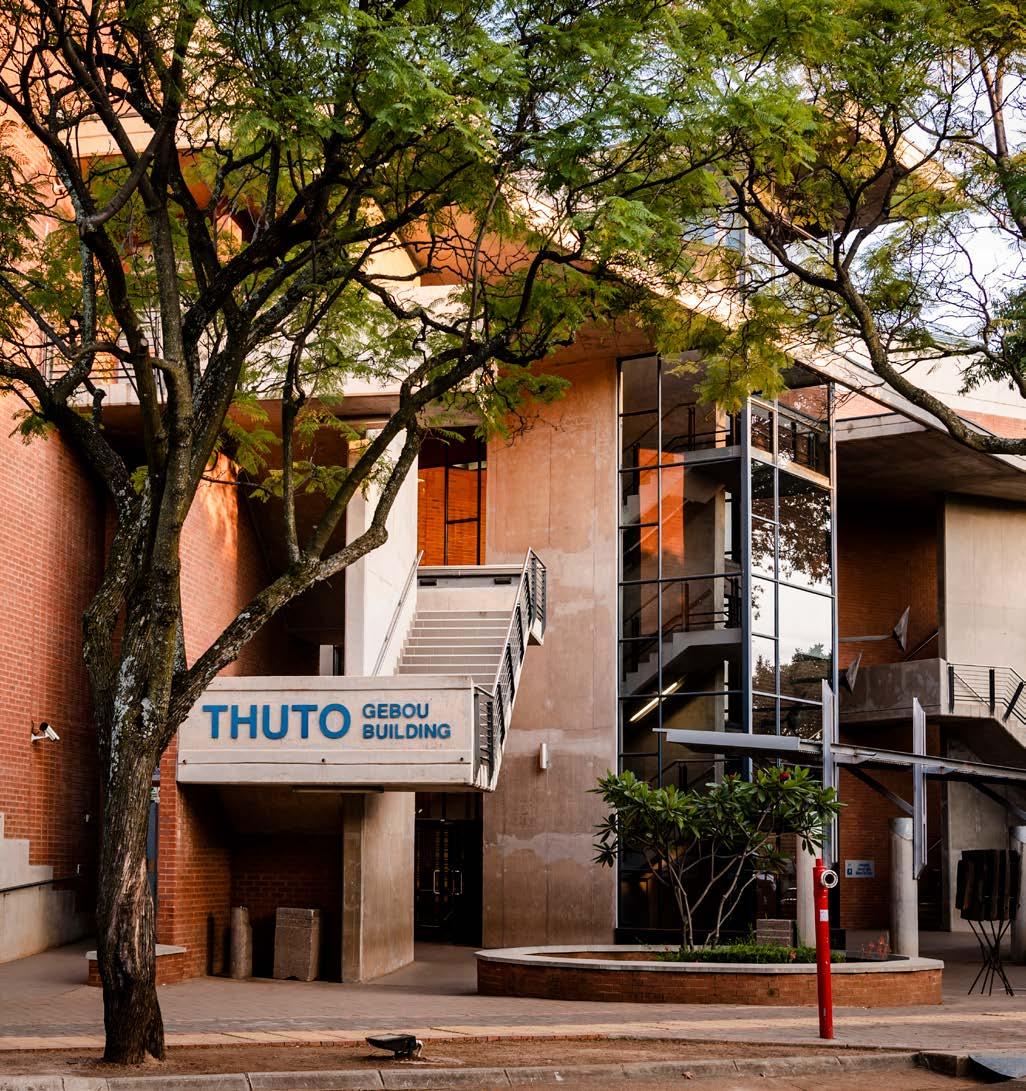
We are a public research-intensive University that is engaged with broader society and operates on the basis of the public good. Our vision and strategic goals deliberately position us to engage with contemporary, emerging and future societal concerns and priorities. In doing so, we foster mutually beneficial interaction with our internal and external stakeholders, collectively contributing to advancement that is socially responsive, and contributes to meaningful societal impacts in South Africa, Africa and the world.
As a core function, our engagement is rooted in, and arises from, our teaching, learning and research and is not an adjunct to them. It is underpinned by recognising, respecting and valuing all internal and external stakeholders, and embracing relationships of mutual benefit. In this two-way set of relationships, our contributions are characterised by the capability we build, the knowledge we bring to bear, and the new knowledge we create, all collectively informing the societal impact that we have. At the same time, our stakeholders and partners bring valued and diverse knowledge, experiences and opportunities that support our commitment to excellence in teaching, learning, research and innovation.
As an integral part of society and an institution for the public good, we recognise the importance of our stakeholders and the need to engage with them meaningfully in areas of shared interest. Our stakeholder engagement philosophy spans both internal and external stakeholders, and is characterised by recognising, respecting and valuing all stakeholders for their embedded talents and capabilities. This open and inclusive approach enriches the solutions that we co-create and our collective impact.
2022 Sustainable Development Report 23
Leveraging internal stakeholders to create value
Our internal stakeholders, comprising the entire University community, consist of academic, professional and support staff, and the student body. Formal governance and engagement structures across the University hierarchy involve all internal constituencies, are well established, and continue to function well. Beyond formal structures and processes for engagement, the University continued to undertake initiatives to strengthen an inclusive and engaged culture that embraces diversity, collaboration and innovation. Such an enabling culture calls for high levels of trust, and is essential to mobilising the array of talents within the University community for a sustainable future.

During 2022, we began a detailed review and revision of the UP Transformation Strategy, incorporating a dedicated focus on creating safe spaces for dialogue to strengthen the institutional culture. Approval of the revised strategy is scheduled for 2023. Closely linked to the institutional Transformation Strategy, and affirming the importance of culture in enabling engagement within the University community, an Institutional Culture Survey was concluded in 2022. Important dimensions of the survey included evaluating progress from the first Institutional Culture Survey undertaken some 10 years ago, and the identification of opportunities to strengthen the culture to support implementation of the UP strategy. All faculties and professional service departments reviewed survey outcomes relevant to their areas of accountability, and have incorporated initiatives to address weaknesses as part of their annual plans.
Another example of the institution’s approach to strengthening a culture of engagement for mutual benefit, is our continued effort to advance transdisciplinarity in teaching, learning and research. This involves both internal and external stakeholders. From an internal stakeholder perspective, there is increasing collaboration between different faculties around defined complex challenges, and the use of transdisciplinary platforms such as Future Africa, Javett-UP Art Centre, Engineering 4.0 and Innovation Africa @UP.
2022 Sustainable Development Report 24
“Beyond formal structures and processes for engagement, the University continued to undertake initiatives to strengthen an inclusive and engaged culture that embraces diversity, collaboration and innovation.”
Collaborating with external stakeholders to amplify impact
External stakeholders represent far greater disparity across and within different stakeholder categories. To address this heterogeneity, we focus on an initiative-led approach that considers the nature and complexity of initiatives, and enables more targeted and fit-for-purpose stakeholder engagement. The initiative or complex challenge being addressed determines the requisite mix of voices and stakeholders around the table. Depending on the issues at hand, stakeholders could include those from academia, civil society, government, industry and any mix of these categories. Initiatives are also mapped according to their geographic footprint, which may be local, national, continental and global.
As part of our strategic intent, stakeholder engagement is ubiquitous to what we do. We continually undertake a wide array of engagements across stakeholder categories, and across the geographic footprint hierarchy. Engagement and collaborations range from those at individual researcher levels, through unit, faculty and institutionallevel collaborations. Institutional collaboration is largely through multi-university networks covering an expansive African footprint, and an equivalent global reach. Networks include the African Research Universities Alliance (ARUA), the Association of Commonwealth Universities (ACU), the Australia-Africa Universities Network (AAUN), the Regional Universities Forum for Capacity Building in Agriculture (RUFORUM), the Alliance for African Partnerships – Michigan State University (AAP), and the University Social Responsibility Network (USRN). In certain networks, UP plays a leadership role such as hosting the ARUA Centre of Excellence on Sustainable Food Systems, and representation on the ACU Council by our Vice-Chancellor, who is also co-chair and African Chair of the Steering Group that provides guidance and oversight to the AAUN. Selected institutional collaborations and partnerships are discussed in more detail in the section on networks and partnering.
Community engagement
Community engagement (CE) represents a special form of stakeholder engagement. It recognises that we are embedded in our host communities, and affirms the importance of communities and civil society.
Our approach to CE, comprising our engagement as an institution and engagement through the curriculum, is framed by an Institutional Policy on Community Engagement. The policy guides and shapes our CE programmes and their integration into core and support functions. Institutional CE is discussed in more detail in the section on UP as an anchor institution. Curricular CE is addressed in the section on driving sustainability through our core functions.

2022 Sustainable Development Report 25
TRANSLATING OUR STRATEGY INTO ACTION
OPERATIONAL SUSTAINABILITY

PEOPLE PRACTICES FOR SUSTAINABLE DEVELOPMENT
The University of Pretoria remains firm in its conviction that our success as a leading research-intensive university is through people who create ideas and turn intentions into reality. Our sustainability is anchored in this principle, and we continue to focus on attracting, developing and retaining talent to support the University’s strategic agenda and institutional goals; creating just and inclusive workplaces with decent work conditions and the protection of labour rights; and enhancing the holistic wellbeing of staff.

In setting the institutional direction and tone, the Human Resources Committee of the UP Council comprises at least five members, all of whom are external Council members, and includes the Chairperson of Council. The committee determines the general conditions of service, annual salary adjustments, disciplinary provisions and benefits of employees, as well as approving codes of conduct and regulations applicable to employees. Other functions of the committee include ensuring that the appointment of employees, conditions of service and all other activities pertaining to employees conform to all relevant legislative provisions, as well as monitoring the implementation of the University’s Employment Equity (EE) Plan.
Our performance
In achieving our aspiration to contribute meaningfully to societal transformation, we recognise that we too must transform ourselves. This entails transforming the institutional culture in a way that builds trust and creates the conditions for all to reach their full potential. Flowing from our five-year institutional strategy, we believe that by embracing and advancing equity, diversity, inclusivity, innovation and entrepreneurship, we will address historic legacies which persist, thus securing our future.
Transforming the University
During the year, the Transformation Office, supported by the Transformation Review Committee, undertook a detailed review and revision of the UP Transformational Plan. Critical inputs to the review were the UP institutional strategy and the findings of the Institutional Culture Survey concluded in early 2022.
The University of Pretoria has been on a transformation journey for over two decades, and while significant progress has been made, further work is required to realise a fully transformed and equitable University community. To achieve the desired step change, the revised plan incorporates certain fundamental shifts. At the outset, the scope of transformation was broadened beyond diversity and inclusivity which tended to focus
2022 Sustainable Development Report 27
on compliance towards achieving agreed employment equity and diversity targets. Moving beyond compliance entails expanding the dimensions of transformation to include concepts such as innovation and entrepreneurship, embedding them into the institutional fabric, and using transformation as a lever to address historic legacies as well as to secure a better future.
In the latter part of 2022, extensive engagement on the draft plan was undertaken, with all constituencies of the University community incorporating ideas and further refinements to it. In addition to enriching the design of the plan, the engagement process served to mobilise community members and increase ownership of transformation and the developing plan. Approval of the revised transformation plan by the University Council is anticipated by mid-2023.
Staff development and capacity building
Strengthening the leadership, technical and social competencies and skills needed to advance our transformation agenda, and achieve our institutional goals is a key focus of our talent management. This is evident in the suite of programmes in place, ranging from supervisory and management development, to enhanced support for the attainment of doctoral qualifications in staff from designated groups, and leadership and coaching programmes at senior managerial and executive levels.
A supervisory programme to improve managerial and supervisory skills was implemented in 2022, with 84 employees participating. The programme runs over six months, with candidates attending at least 12 days of lectures in monthly block sessions. Coursework includes submitting assignments, working in syndicate groups and writing exams for different study modules.
Since 2016, the University has been participating in the New Generation of Academics Programme (nGAP), led by the Department of Higher Education. The programme focuses on addressing national critical skills shortages and increasing the number of individuals from designated groups with doctoral degrees. Five candidates enrolled in 2022, bringing the number of enrolments from inception of the programme to 36. By the end of 2022, a cumulative total of 18 candidates had completed their doctoral studies.

The Programme for Academic Leadership (PAL), which has been in place from 2012, continued through the year, with 20 senior academics participating. Participants are drawn from the pool of deans, deputy deans, heads of departments, professors and associate professors. Additionally, two deans and one deputy dean participated in the Executive Coaching Programme during 2022.
Beyond established staff development programmes, UP actively provided internship and learnership opportunities during 2022, helping to address youth unemployment and improve employability. Sourcing funds from various Sector Education and Training Authorities, and partnering with Universities South Africa (USAf) on the Presidential Youth Employment Intervention (PYEI), 327 interns and learners were enrolled during the year. These included 20 learners living with a disability. Opportunities covered a wide range of fields, with a cost of over R16 million for the year.
2022 Sustainable Development Report 28
“In achieving our aspiration to contribute meaningfully to societal transformation, we recognise that we too must transform ourselves.”
Employee relations and engagement
During the year, we continued our efforts to maintain and strengthen a just and inclusive workplace, with decent work conditions and the protection of labour rights. Committee structures that enable active involvement and participation of staff members in the people matters of the University continued to function effectively. These cut across policy formulation, recruitment, skills development and benefits management, and seek to enhance transparency and fairness in the workplace. During the year, the Human Resources Department continued the ongoing process of policy review and alignment, to ensure currency and consistency in the University’s policies and procedures related to people practices.
Beyond the established institutional conflict resolution policies and procedures through the Grievance Procedure and Disciplinary Code, UP has adopted an Alternative Dispute Resolution (ADR) process, which is a non-punitive tool that has proven to be an effective alternative for conflict management.
The University continued efforts to strengthen relationships between University management and organised labour. The University of Pretoria Bargaining Forum (UPBF) engaged on various staff matters of mutual interest and, in July 2022, a Relationship Building by Objectives (RBO) session was held with recognised unions. The RBO session took place after union leadership elections, and partly served as an onboarding process for newly elected union leaders. Collective bargaining at UP is characterised by constructive engagement, and we continue to explore effective mechanisms to improve engagement between the employer and recognised unions.
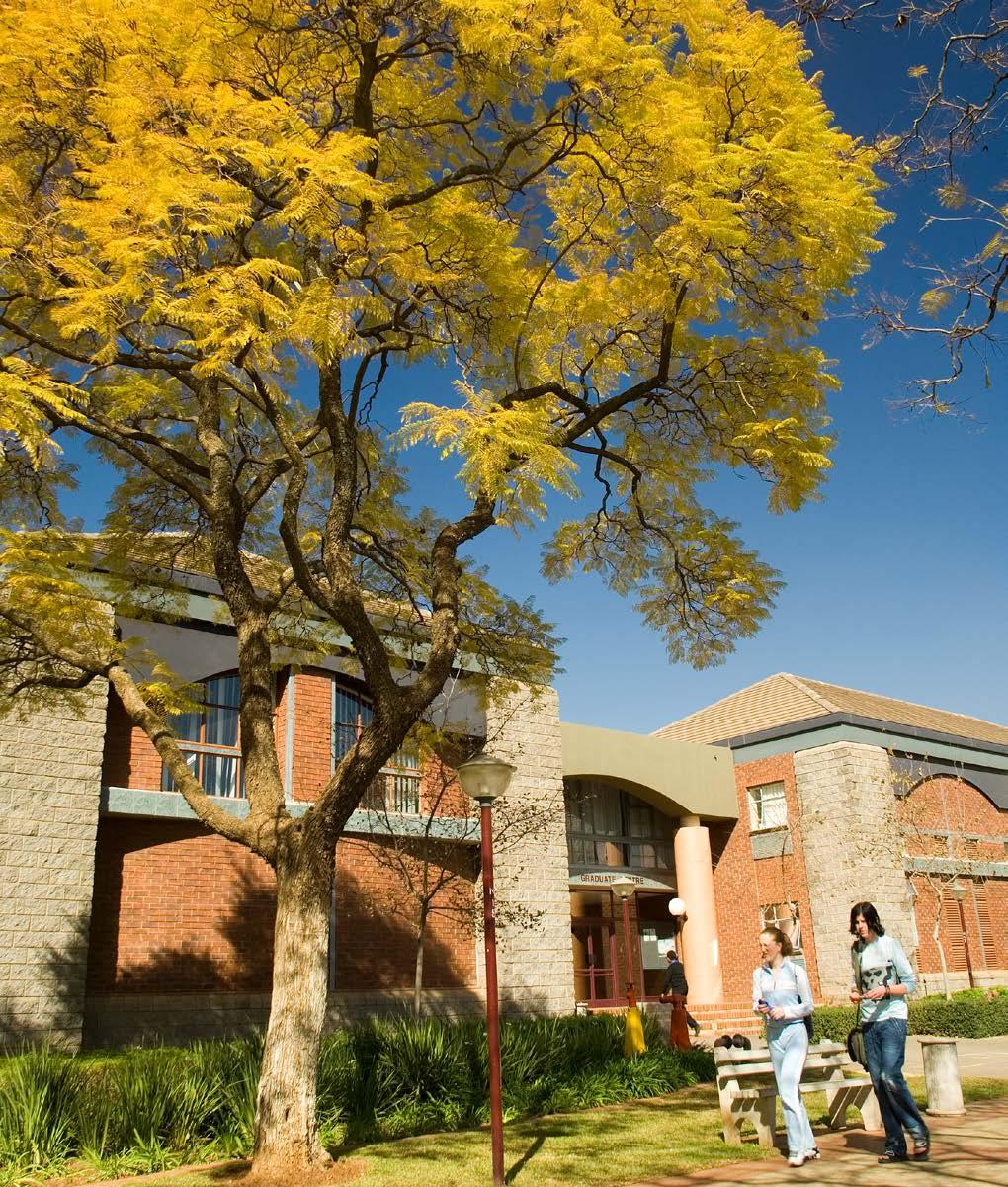
2022 Sustainable Development Report 29
“The University continued efforts to strengthen relationships between University management and organised labour.”
Employee well-being
The quality of leadership and the overall institutional culture and environment, as discussed, are significant determinants of employee well-being. To complement these, dedicated efforts to enhance physical and emotional health and well-being of employees continued throughout the year. These comprise confidential Employee Wellness Programme services, managed centrally from the University’s Hatfield campus through the Employee Well-Being Programme at UP (EWP@UP). In addition to providing support to individuals, EWP@UP ran several campaigns and a series of virtual lunchtime talks on issues such as mental health, addressing the stigma of HIV/AIDS, effective workplace relations, and the importance of physical activity.
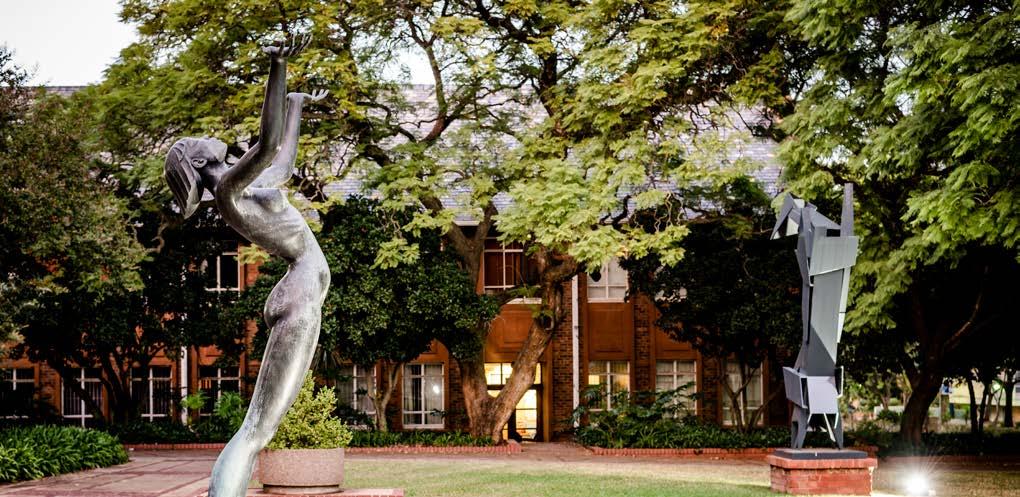

Anti-discrimination and social justice
The University’s commitment to creating a culture of zero tolerance of discrimination in all its manifestations is guided by the Anti-Discrimination Policy. Supported by a detailed Operations Manual, the policy sets expectations and provides guidance towards creating a safe and inclusive study and work environment for all its students and staff. During the year, activities creating awareness and empowering staff and students around the various issues covered by the policy were undertaken. These included the provision of online training on sexual and gender-based violence, and the hosting of UP’s annual Anti-Discrimination and Social Justice Week. The Transformation Office also streamlined its anti-discrimination reporting tool and launched access for students in 2022.
2022 Sustainable Development Report 30
ALIGNMENT WITH THE SDGs


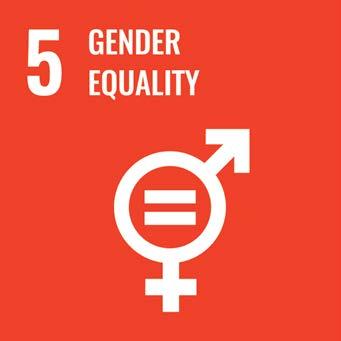



2022 Sustainable Development Report 31
TOWARDS THE RESILIENT GRADUATE
During 2022, some 49 500 contact students were enrolled at the University of Pretoria, marginally down from the 50 000 enrolments in 2021. Of these, around 74% are undergraduate students and 26% are at postgraduate level. In keeping with our intent to broaden access to previously disadvantaged groups, the demographic profile of UP students has steadily changed over the past five years. In 2022, almost 65% of our contact students were black, compared to 55% in 2017. Of these, almost 60% were women. The ever-increasing diversity profile of the student body is manifest in all areas of University life. For example, at least 69% of the more than 8 000 beds in University-owned residences were taken up by black students, while 16 of the 28 residence house committee chairpersons were black students.

The University has adopted a holistic and integrated approach to developing students so that they are prepared to capitalise on life opportunities, and at the same time contribute meaningfully to the good of society. This encompasses development and support through curricular programmes and faculties that students are enrolled in, and through the extra- and co-curricular student life of Residence Affairs and Accommodation, led by the Department of Student Affairs.
Our performance
Our pathway towards the resilient graduate was discussed in detail in our . In summary, it comprises a connected set of dimensions: an inclusive environment where students have a voice that is valued and respected is a precondition for building resilience; optimal physical, mental and emotional well-being with positive lived experiences improves the ability to learn; effective teaching and learning with academic support builds capability and improves
2022 Sustainable Development Report 32
success rates; nurturing a broader suite of social and leadership competences shapes active citizens and future leaders; and intentionally enhancing work-readiness enables a smoother transition from university to working life, and a higher likelihood of future success.

The student voice and inclusion
The Student Representative Council (SRC) and its substructures – the Constitutional Tribunal, the Residence Sub-Council, Residence Advisory Board and residence house committees, faculty and day houses and registered clubs and societies – collectively provide platforms for consultation and engagement on all matters outside the classroom environment. Additionally, a well-established class representative system is in place to ensure continuous engagement with students regarding academic matters. Altogether, these continued to function effectively during the year.
As the highest level of representation of the student voice, the SRC actively participated in key institutional structures such as the University Council, Senate and sub-committees of Senate, the Institutional Forum, the Institutional Transformation Committee, and the Workplace Safety Committee of the University. Beyond representation in formal structures, the SRC held regular meetings with the ViceChancellor and the Vice-Principal of Student Life. These ongoing engagements relate to broad issues facing the student body, including financial support and funding mechanisms, student accommodation and living conditions, student health and wellbeing, off-campus safety and security, and gender-related matters.
To support the transition from school to university, and promote a sense of inclusion and belonging, in 2022, the Department of Student Affairs (DSA) introduced the First Year Experience Programme. The programme runs throughout the academic calendar year and provides supplementary support to new students, beyond Academic Orientation Week and the residence welcome programme. To deal with challenges and issues faced, the topics covered include health and well-being; financial wellness; cyber literacy; sexual and reproductive health; and rights, anti-discrimination, leadership and resilience.
In a special case of broadening access and inclusion, the DSA’s Disability Unit continued to facilitate a recruitment process for Grade 12 learners with disabilities from schools in the surrounding townships of the Tshwane region. For registered students, in 2022, the unit provided dedicated support to 559 students with visual, hearing, neurodevelopmental and psychiatric disabilities. This included support for the complete return to contact education in the second semester, as well as career counselling and providing information on UP course offerings, co-curricular activities, student leadership opportunities and the range of professional services on offer.
2022 Sustainable Development Report 33
“The University has adopted a holistic and integrated approach to developing students so that they are prepared to capitalise on life opportunities, and at the same time contribute meaningfully to the good of society.”
Student well-being and lived experiences

The University continued to provide comprehensive health and well-being services to students through the Student Counselling Unit and Student Health Services. With increasing demands and post-COVID mental health challenges, the unit expanded its hybrid service offerings, and additional counsellors and interns were appointed to increase capacity and improve turnaround times. Psychiatric care was extended by contracting two local psychiatrists to attend to complex cases. To increase awareness and broaden capability among non-healthcare staff, “psychological first aid” training sessions were presented to faculty members and heads of residences. Additionally, a protocol for emergency referral with stratified intervention levels depending on the severity of cases was developed.
During the year a range of awareness campaigns and support initiatives were undertaken. Monthly mental health and well-being awareness campaigns were also run on sensitive issues such as suicide prevention, gender diversity, consent to intimacy, and how to manage a panic attack. These were supported by complementary initiatives, such as the BounceUP podcast project in collaboration with TuksFM, which featured episodes with titles such as ‘What is Mental Health and Mental Illness?’, ‘Understanding Resilience’ and ‘Romantic Relationships and Gaslighting’. An innovative initiative to support the emotional well-being of students (and staff) were visits by TOP Dogs, where three animal-assisted therapy sessions were provided ahead of examinations. Based on research which indicates that human-animal interaction has a relaxing and stressreducing effect on people, the TOP Dogs visits received an overwhelming response.
Financial insecurity commonly impacts negatively on mental and emotional health and well-being, and on student success rates. Furthermore, insufficient funding is a significant barrier to broadening access to students from disadvantaged backgrounds. To this end, UP continued to provide funding or facilitate access to funding sources for financially disadvantaged students. A large portfolio of bursaries included the University’s own funds, funds raised through donations and grants, and funding administered on behalf of third parties such as state departments, foundations and provincial governments. For the year, direct funding from UP amounted to R169 million.
The Student Nutrition and Progress Programme (SNAPP) continued to address the issue of student hunger. A total of 1 255 students were assisted, with the distribution of 2 505 food parcels. Testimony to the programme’s success, demonstrable improvements in the average grades of participating students were evident.
Generous donations from the Tiger Brands’ Plates4Days initiative contributed to the programme’s success.
2022 Sustainable Development Report 34
“To increase awareness and broaden capability among non-healthcare staff ‘psychological first aid’ training sessions were presented to faculty members and heads of residences.”
Enhancing capability and providing support for academic success
FLY@UP is a comprehensive, institution-wide and multistakeholder student success initiative led by the Vice-Principal: Academic. The acronym FLY stands for ‘The Finish Line is Yours’, and is a tagline unique to UP. It serves to remind students that they are responsible for ensuring completion of their studies in the minimum time, and moves the narrative away from the idea that student success lies largely in the hands of the lecturers and student support staff. Notwithstanding this primary accountability, stakeholders enabling success include the deputy deans for teaching and learning, relevant professional and support departments such as the Department for Education Innovation, heads of academic departments, and faculty teaching and learning committees.
Implementation entails an integrated and closely coordinated approach involving faculties and professional and support departments, to address barriers and to capitalise on opportunities for student success. Activities cut across a range of themes such as student recruitment and broadened access, financial security, holistic well-being and inclusion, safety, academic support and development, and improved career prospects.
Academic support is provided through various pathways. Providing quality teaching and learning opportunities serves as a foundation for students to engage actively and authentically with the knowledge, skills, attitudes and values of a particular discipline or field of study. Faculty student advisors (FSA) provide anchoring co-curricular support and serve as a “safety net” for at-risk students. Early identification of such students
enables FSAs to provide targeted interventions or referral for more specialised support. Advisory activities include module choice, dropping modules, goal-setting, adjustment to university life, time management, study methods, stress management, exam preparation and career exploration. The support provided fosters development of the whole student towards becoming a self-directed, motivated and responsible decisionmaker, and encourages the successful completion of degree requirements and timely graduation. Interactions between FSAs and students are captured using the IDSCs Learner Case Management System (LCM). The system provides an overview of the student’s academic information to be used by the FSA, and generates monthly reports on engagements.
Given the difficulties associated with the transition from high school to university life, especially for first-generation students and those from disadvantaged communities, particular attention is placed on first-year students. Academic orientation introduces first-year students to all aspects of university life through a pre-orientation online module, Academic Orientation Week, and an eight-week online faculty-based extended orientation course. In 2022, the three-tiered programme’s effectiveness was recognised internationally, with UP winning the Catalyst Award: Optimising the Student Experience from Anthology.
Linked to the academic orientation, the University conducts an annual UP Readiness Survey, exploring first-year students’ preparedness for higher education. The survey explores financial, social and academic engagement, and enables referral of potentially at-risk students to FSAs or to the STARS Mentorship Programme. In the STARS programme, senior UP students serve as peer mentors to help new students through their first semester.
2022 Sustainable Development Report 35
“Implementation entails an integrated and closely coordinated approach involving faculties and professional and support departments.”
Shaping active citizens and future leaders
In September 2022, the Policy on Organised Student Life was amended and approved by the University Senate. The policy addresses the governance and functioning of all organised student life structures for a vibrant extra- and co-curricular environment. These enable students to participate actively in well-structured programmes and activities for their personal growth and professional development outside the classroom. The overarching aim is to cultivate well-rounded, successful graduates and responsible citizens.
Supported by the SRC, entities covered by the policy and involved in student life activities include UP-owned residences, four day houses, nine faculty houses, the PDBY student newspaper, the Student Discipline Advisory Panel, RAG Committee, Student Culture Committee and Student Sport Committee, the Constitutional Tribunal, and a total of 125 registered student societies.
A special focus of the University is the empowerment of young women. The third University of Pretoria Girls4Girls mentorship cohort, comprising 40 mentees and 14 mentors, was hosted by the Department of Student Affairs in 2022. The programme focuses on enhancing leadership skills of tertiary female students who are in their second, third or final year of study, to prepare them for the world of work and develop their leadership skills. Hybrid training and development sessions were held between August and October 2022, with an online platform accommodating mentees and mentors from across the country and abroad.
Enhancing readiness for work
In a 21st-century world of work where academic qualifications are no longer sufficient to guarantee employment, employees are seeking multi-skilled and self-driven graduates who are work-ready.
Our graduates are sought after, with 97% of graduates being employed within six months of completing their studies. Over 300 000 UP alumni are spread across a broad global footprint of 118 countries.
The UP Ready for Work Programme, hosted in collaboration with Enterprises University of Pretoria (Enterprises UP), was launched in 2017 to support the transition from the world of education to the world of work. It assists young adults, students and recent graduates entering the workforce to build life skills, and to integrate more easily into the workplace. The programme comprises four online packages: Career Planning, Power Skills, Job Preparation and Your Career. Its value has been widely recognised, and in 2021 it won the Best Work Readiness Initiative at the 2021 South African Graduate Employers Association (SAGEA) Awards.
In 2022, UP was positioned in the 251 – 300 range globally for the QS World University Rankings for Graduate Employability. A key feature of the University’s performance is in alumni outcomes, where 17 alumni were identified as worldchanging graduates.

2022 Sustainable Development Report 36
“The overarching aim is to cultivate well-rounded, successful graduates and responsible citizens.”
ALIGNMENT WITH THE SDGs



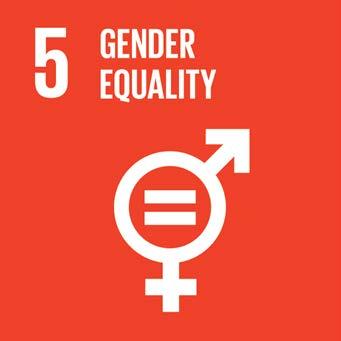
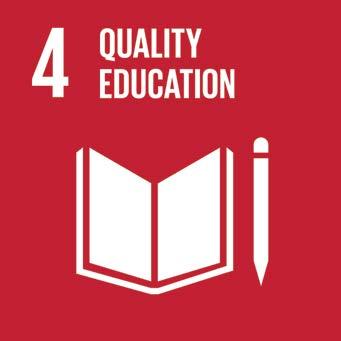




2022 Sustainable Development Report 37
TOWARDS THE RESILIENT CAMPUS

The expansive footprint of the University covers an area of some 1 165 hectares, and houses more than 1 million square metres of built-up area. UP’s infrastructure includes more than 700 buildings, some dating back to the early 1900s. More than onethird of the structures are classified as heritage buildings and are subject to the provisions of the National Heritage Resources Act 25 of 1999. The University has a conservation management plan in place to ensure that these buildings are maintained.
During the period under review, there were no material changes to UP’s size, structure or operating model.
Campus Erf size in hectares Gross floor area in m² Assignable m² Number of buildings Hatfield Campus, ladies’ residences and surrounds 64.04 469 202 304 608 245 Hillcrest Campus 293.41 178 780 114 939 250 South Campus 3.10 23 061 16 929 14 Faculty of Health Sciences 5.88 110 069 68 904 44 Groenkloof Campus and residences 40.02 98 008 64 046 30 Mamelodi Campus 20.02 24 982 15 563 15 Onderstepoort Campus and residences 65.83 84 250 47 737 86 Gordon Institute of Business Science 2.23 28 799 21 367 4 Other 670.61 26 374 16 807 49 Total 1165.23 1 043 525 670 900 737 2022 Sustainable Development Report 38
The UP property collectively carries more than 60 000 individuals, comprising students and staff. Activities across the University, and their potential impacts thereof, relate to human interactions on the campus and its surroundings; work in the core functions of teaching and research; and services arising from or supporting its core functions. Potential impacts – both positive and negative – are not limited to the University, as the different campuses are interspersed and co-exist within a diverse array of mixed-use human settlements.
All real estate and facility-related services are provided or coordinated by UP’s multidisciplinary Department of Facilities Management, which has a broad portfolio of accountability encompassing the planning, development, operational management, maintenance and record-keeping of the University’s vast estate. The department shapes the strategic approach around how infrastructure, land, related services and logistics support the broader University strategic intent, and it manages the operationalisation of such activities. It also plays a central role in addressing and navigating the environmental challenges associated with such a large and complex operation. As a quality-driven leader in higher education estate and facilities management, the department continues to benchmark favourably nationally and internationally. Relevant UP policies and standards were presented in detail in our .
Our performance
In managing the University’s infrastructure and land, and the provision of various support services, decision-making is significantly influenced by the need for optimal management of water, energy and waste. Stewardship activities include protecting resources and reducing consumption, recycling water, exploring and utilising alternative energy sources, preventing environmental impacts such as pollution, rehabilitating land when necessary, and supporting biodiversity.
During the year under review, our landscape was dominated by two key features affecting our performance. With the relaxing and ultimate suspension of COVID-19 restrictions, the return to normal activities inevitably drove increased resource demand and utilisation. The second landscape dynamic was the dramatic decline in national energy security, with frequent and prolonged periods of load shedding. The implications of these will be discussed in the relevant sections of this report.
Well-planned, designed and reliable infrastructure
The planning, design and construction of infrastructure are key elements of the University’s approach to sustainability. This is supported by a planned and scheduled maintenance programme. The design of new buildings, or the refurbishment of existing ones, incorporates systems to reduce energy consumption. Energy efficiency is prioritised when purchasing energy-intensive equipment. As part of equipment replacement programmes, failed heating, ventilation and air conditioning (HVAC) equipment is replaced by units that incorporate inverter compressors, which are more energy efficient. Existing light fittings are replaced with energy-efficient equivalents. Supporting a cultural shift to energy conservation, the University has a set of simple rules to promote energy saving by all members of the University community.
Various building management systems are used to monitor performance across campuses. Efforts are underway to improve and extend them through standardisation and consolidation of all systems to one front-end system to manage and view plant and equipment. During the year, the number of electrical metering points was increased to improve data availability. An exercise is currently underway to obtain electrical performance certificates for the University, in order to meet legal requirements. The water management system also continues to be improved, and during the year more remote meters were installed for greater accuracy of information. Water pressure is actively monitored, enabling prompt action when water pressures drop. Daily leak detection reports also help to minimise water wastage.
2022 Sustainable Development Report 39
“In managing the University’s infrastructure and land, and the provision of various support services, decision-making is significantly influenced by the need for optimal management of water, energy and waste.”
Managing energy and our carbon footprint
During the year, significant challenges were experienced due to limitations of the City of Tshwane Metro Municipality’s (CTMM) bulk infrastructure, with frequent interruptions in bulk services. These challenges reside within the CTMM, and were compounded by the extreme load shedding experienced during the year. The University sought to address certain issues and facilitate better working relationships with the municipality through a revised memorandum of understanding. Improving municipal bulk infrastructure, however, is likely to take many years, and this has necessitated duplication of bulk services such as back-up power and water supplies by the University. This has come at great cost, particularly around increased diesel consumption during periods of load shedding. UP currently has 76 generators providing more than 42 megawatts of electricity.
A significant and ongoing infrastructure development by the University is the installation of photovoltaic (PV) panels to improve energy security and increase utilisation of renewable energy. The initiative has been underway since 2018 through a power purchase agreement, with the installation of PV panels on new and existing buildings. By 2022, a total of 2 179 panels had been installed, bringing the University’s PV capacity to approximately 1 megavolt amperes (MVA). For the year, 1 360 741 kilowatt hour (kWh) of electricity was generated by PV panels, on par with the amount generated in 2021. In 2023, PV capacity will be increased by another 2 MVA, through the installation of a ground mounted PV plant on the Innovation Africa@UP campus.
Other initiatives to improve energy security and ensure business continuity during the year included the conversion of mobile generators to permanent installations (Jacaranda and Protea Mbalenhle generators), and new generator installations at the HW Snyman Building, and at the Asterhof and Vergeet-my-nie women’s residences. Despite the challenges of intense load shedding and suboptimal municipal bulk service delivery, UP continued efforts towards effective resource management. A shift towards greater use of renewable energy is reflected in increased electricity generated by PV (see figure, top right), and a decline in electricity purchased from Eskom, although the latter has been significantly influenced by reduced Eskom capacity and consequent load shedding. At the same time, 2022 saw increased campus activity compared to 2021, due to the lifting of COVID-19 lockdown restrictions and with an associated increase in resource demands.
Electricity generated by PV (kWh) 1 600 000 1 400 000 1 200 000 1 000 000 800 000 600 000 400 000 200 000 0 2018 2019 2020 2021 2022 Electricity consumption from Eskom (kWh) 120 000 000 100 000 000 80 000 000 60 000 000 40 000 000 20 000 000 0 2018 2019 2020 2021 2022 2022 Sustainable Development Report 40
In 2022, UP produced its seventh Carbon Footprint Report in terms of greenhousegas emissions (GHG). This is in line with our continued commitment to sustainable development, and the rigorous application of supportive practices. As with previous reports, the GHG Protocol Revised Accounting Standard (2013) for accounting and reporting is used, applying an operational control approach. Reporting covers the primary campuses as our organisational boundary. We report on:

• Scope 1: direct emissions driven by the UP-owned vehicle fleet, back-up generator use, and the use of LPG gas in research laboratories; and
• Scope 2: indirect emissions from the use of purchased electricity.
While we have been measuring Scope 3 data (other indirect GHG sources) for the past three years, at this stage they do not form part of the carbon footprint assessment. Additionally, carbon offsets from our recycling programmes, although calculated, are not included in the carbon footprint measurement.
Intensity metrics 2018 2019 2020 2021 2022 Floor area (m²) 994 998 1 018 878 1 028 931 1 039 970 1 043 525 Total elemental carbon (tCO2e) 92 745 98 337 64 495 76 540 78 648 Tonnes CO2e/m² 0.09 0.10 0.06 0.07 0.07 UP population 60 184 58 331 59 754 61 497 63 420 Carbon footprint (tCO2e / person) 1.54 1.65 1.07 1.24 1.24 Total elemental carbon emissions 1 200 000 1 000 000 800 000 600 000 400 000 200 000 0 2018 2019 2020 2021 2022 2022 Sustainable Development Report 41
Sustainable water use
Guided by our detailed Water Management Plan, various water conservation projects and activities continue to increase awareness and commitment to protecting this resource, and to optimising its use across the University. The design of new buildings and refurbishment of existing ones include high-efficiency plumbing systems to reduce usage and wastage. This is supported by preventative and scheduled maintenance, coupled with early leak detection and intervention to prevent water losses.
Reducing the University’s large-scale landscape water use is addressed by water-efficient irrigation systems, the implementation of water-wise gardening, and using recovered water sources. Rainwater is harvested and stored, and where possible, reclaimed water is used safely. Storage tanks and reservoirs are also used to store borehole water. Year-onyear reductions in municipal water consumption are demonstrated.
Waste management
Under normal operational conditions, UP is a major generator of general waste (recyclable waste, food waste and garden waste). During 2022, a total of 108 857kg (see figure, above) of waste was recycled and an amount of R151 201 was received in rebates. This was a 19.75% increase in recycling compared to the same period in 2021. This increase was directly attributable to COVID-19-related lockdown restrictions being lifted, with students returning to campus and the resumption of normal student life.
Municipal water purchased (kl) 1 200 000 1 000 000 800 000 600 000 400 000 200 000 0 2018 2019 2020 2021 2022 General waste recycled (kg) 180 000 160 000 140 000 120 000 100 000 80 000 60 000 40 000 20 000 0 2018 2019 2020 2021 2022 2022 Sustainable Development Report 42
The upgrading of the compost and mulch production facility on the Hillcrest Campus has substantially decreased the need for, and costs of, transporting garden refuse to landfill sites. Compost and mulch to the value of approximately R2.1 million was produced and used on all the University properties. The use of mulch in plant beds results in a decreased need for irrigation water, prevents weed infestation and creates healthier soils. In 2022, the amount of mulch and compost produced at UP increased after declining in 2021.
While Scope 3 data does not form part of our carbon footprint, potential savings and offsets in carbon emissions through general waste recycling are evident.
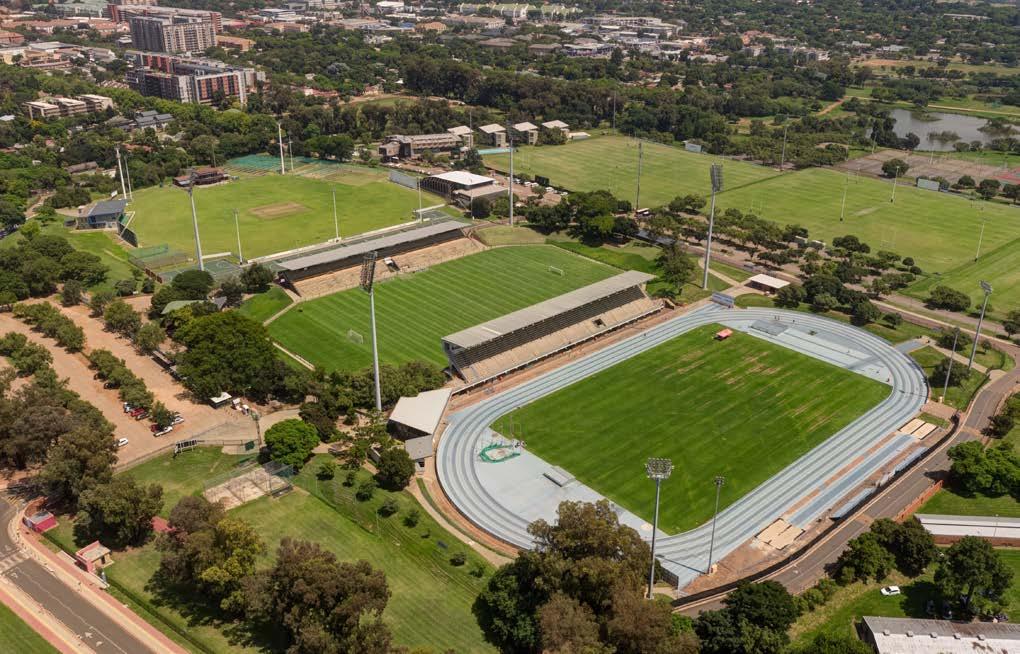
Mulch and compost combined (m³) 4 000 3 500 3 000 2 500 2 000 1 500 1 000 500 0 2018 2019 2020 2021 2022 tCO2e savings 5 000 000 4 000 000 3 000 000 2 000 000 1 000 000 0 2018 2019 2020 2021 2022 2022 Sustainable Development Report 43
Land management and biodiversity
The University of Pretoria has an extensive network of sporting fields and gardens that are a significant part of the UP identity. They require active management underpinned by sustainability principles and practices.
Our organic approach to caring for the sports fields and sports turf areas using locally produced compost, vermicast granular fertiliser, organic bio-stimulant and organic liquid fertiliser continues to bear fruit. The soil is kept healthy and balanced, supporting natural microbes and earthworm life. Turf is more durable and recovery rates are increased. Less irrigation water is required and the need for chemical fungicides, insecticides and herbicide, with their potential for human harm, has been eliminated. This is complemented by water-efficient irrigation systems, water-waste gardening and the use of water from recovered sources.
The Manie van der Schijff Botanical Garden which covers approximately 3.5 hectares within the Hatfield Campus is a distinctive part of the UP identity and its commitment to education, research, conservation and community service. The garden has around 3 000 plant species, and plays an important role in raising awareness of Southern Africa's indigenous flora through the acquisition and dissemination of botanical knowledge. This includes the provision of plant material for education and research purposes, the collection and propagation of rare and endangered species, and research into indigenous plant species with horticultural potential. Curators and staff of the garden participate in teaching and outreach activities both within the University, and in the broader community.

2022 Sustainable Development Report 44
“Our organic approach to caring for the sports fields and sports turf areas using locally produced compost, vermicast granular fertiliser, organic bio-stimulant and organic liquid fertiliser continues to bear fruit.”
ALIGNMENT WITH THE SDGs



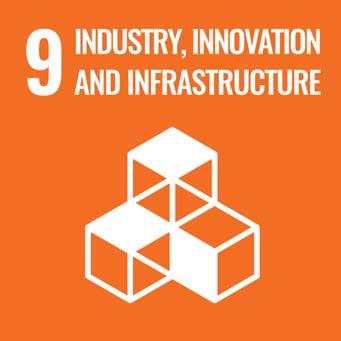




2022 Sustainable Development Report 45
UP AS AN ANCHOR INSTITUTION
Our six primary campuses all form integral parts of their host communities, with multiple interdependencies and shared ecosystems. In each precinct our presence is significant due to our footprint size, access to intellectual and financial resources, and major contribution to economic and social activity.
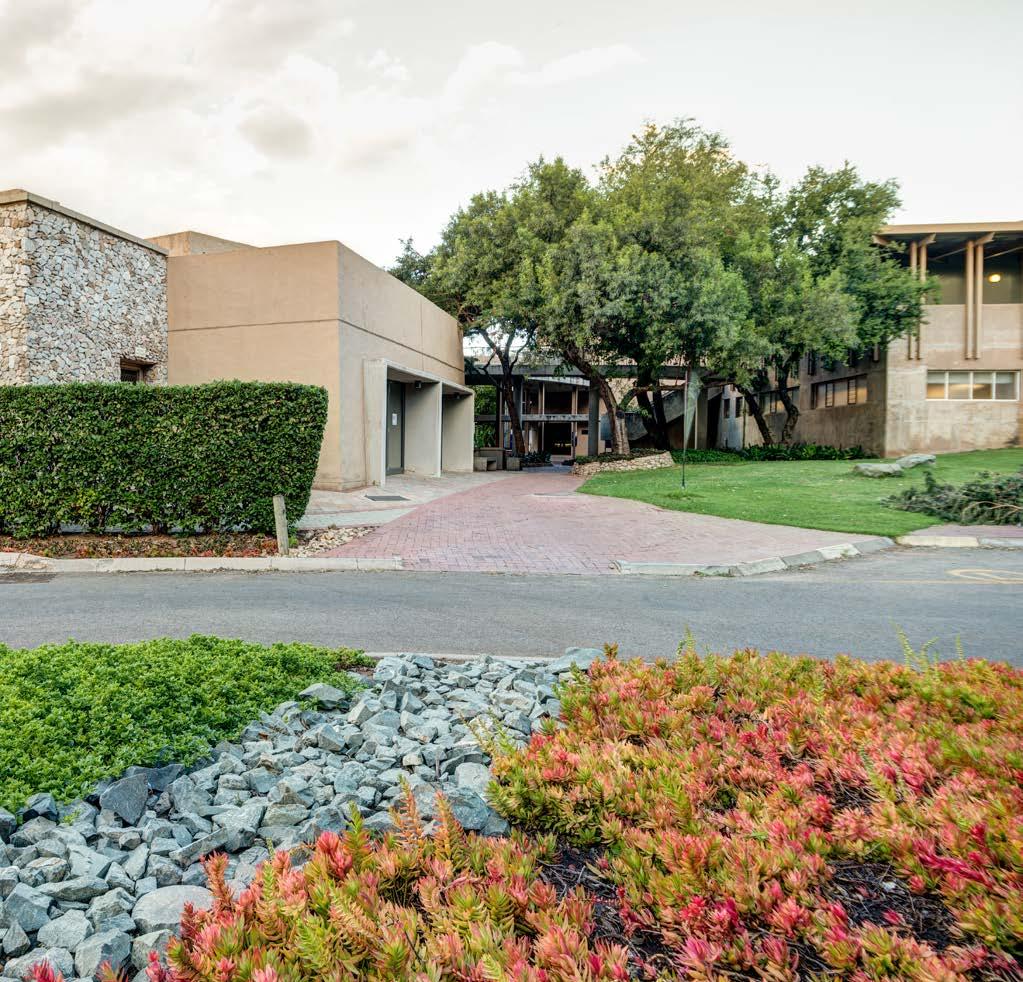
As such we function as an anchor institution in these areas. To this end, we intentionally seek to support a flourishing economic, social and physical environment in the surrounds of all the campuses. This is in recognition of the fact that we have a shared future with our neighbours, and our own sustainability is dependent on that of our host communities. Our institutional anchor strategy, which is incorporated into the UP Spatial Development Plan 2020 – 2025, is underpinned by the philosophy of mutually beneficial and symbiotic relationships with our community stakeholders. The strategy is consistent with the institutional five-year strategy, Destination 2026 and Beyond, as well as with the Institutional Policy on Community Engagement.
Our performance
A key focus of the anchor strategy has been on the Hatfield/Hillcrest area, through the Hatfield Campus Village project, encompassing the Hatfield, Hillcrest and South Campuses. During the year, UP continued participation in the Hatfield City Improvement District (CID), a non-profit organisation funded by property owners within the district boundary. The initiative is in partnership with the Tshwane Municipality and collaborates with local police services and emergency services. Within this area, UP occupies the largest portion of land, and makes the largest financial contribution
2022 Sustainable Development Report 46
in terms of levies paid. The initiative continued to lead urban renewal and social transformation projects around the University’s campuses, working collaboratively towards shared safety and security, urban management and social upliftment through community engagement.
While some lessons from the Hatfield Campus Village project can be transferred in the broader UP context, the other campuses each have their own distinctive challenges due to their unique locations. The Groenkloof, Prinshof and Onderstepoort campuses all face the challenges of isolation of students on the campus and general crime in the surrounding areas, causing the campuses to become more inwardly focused.
The challenge is particularly acute for the Prinshof Campus, where the campus is fragmented and the neighbouring Melgesedek infrastructure is derelict and inhabited by homeless people. The area is a known crime, drugs and prostitution hotspot, and continuous discussions are being held with the City of Tshwane and other stakeholders to upgrade the Melgesedek property and advance inner-city renewal.
The Mamelodi Campus, situated in the heart of Mamelodi, is by its very nature an integral part of the community and their hopes for development. It is surrounded by formal and informal residential areas, with semi-formal and informal retail and trading. The precinct has a wide range of stakeholders across multiple sectors and constituencies. A key aspect of fulfilling its role as an anchor campus is blending with society and demonstrating social citizenship. As a well-resourced entity in the midst of a resource-poor setting, the campus is easily seen as an “oasis” that is separate from local existence, and unreachable. The campus, in collaboration with other departments, is actively working to “soften the hard borders” between the campus and the community to create a greater sense of “us”, and in the process drive further socio-economic development. Several projects and clinics with “on-campus” and “off-campus” activities enhance integration of the campus and the community. These include engagements through the Mamelodi Community of Learning Collaborative; the Historical Society of Mamelodi; the Mamelodi Business Clinic, which incubates entrepreneurial activities and provides community training; community forums; various early childhood development initiatives; and the Mamelodi Campus Animal Clinic.

2022 Sustainable Development Report 47
“As a well-resourced entity in the midst of a resource-poor setting, Mamelodi Campus is easily seen as an ‘oasis’ that is separate from local existence, and unreachable.”
ALIGNMENT WITH THE SDGs








2022 Sustainable Development Report 48
TRANSLATING OUR STRATEGY INTO ACTION
DRIVING SUSTAINABLE DEVELOPMENT THROUGH OUR CORE FUNCTIONS

SETTING THE CONTEXT
Our faculties and their related entities are at the heart of our purpose as an institution for higher education. This is where we give expression to our core functions of teaching, learning, research and engagement in the capability we build, and the useful knowledge that we create. We work in a continuum, starting with excellence within particular disciplines and fields of study, and amplify our impact through collaborative work across disciplines, participating in a range of networks, and establishing strategic partnerships.

A central feature of our strategy is to strengthen an integrated approach for greater leverage as we navigate complexity. This integration is at two levels: different structures working together coherently; and coherence and synergy across the core functions. As with previous reports, we have grouped our faculties into three themes encompassing the broad ambit of sustainable development: sustainable economies; life, our planet and technology; and inclusive societies and capable institutions. While our clustering of faculties is related to the core fields of study which they host, we recognise that in our complex and connected world, their work is not limited to the theme, and that their outcomes and impacts cross over and touch on other themes.
In this section of the report, we showcase a selection of brief stories on some of the sustainability-related work undertaken during the period under review. The stories broadly cover our teaching and learning, research and engagement functions, although, in our integrated approach to the core functions, there is clear overlap across them. The stories are by no means exhaustive, but serve to give a sense of the multifaceted nature of the work we do. Some stories will have elements of teaching, learning and engagement. Similarly, our work, for instance, in sustainable economies, may traverses social, environmental and governance domains, and the same will hold for the other themes. To represent our more tangible indicators, within each theme we present fiveyear charts of our graduate and research outputs for each faculty.
Our transdisciplinary platforms are connected to, and represent an extension of our faculties and work in the core functions. We see them as a vehicle to amplify impact as we respond to the grand challenges facing humanity. A selection of stories on the work they have done will also be presented.
The section will be concluded with a brief review of our network and partnering highlights for the year.
2022 Sustainable Development Report 50
The sustainable economies cluster comprises the Faculty of Economic and Management Sciences (EMS) and the University’s business school, the Gordon Institute of Business Science (GIBS).
SUSTAINABLE ECONOMIES
Our stories
Recognition for teaching excellence
High quality, excellence and global competitiveness are foundational principles of our work. Testimony to this, in 2022 the EMS Faculty’s Department of Financial Management won the Chartered Institute of Management Accountants’ (CIMA) Chartered Global Management Accountants (CGMA) Campus of the Year Award. The honour was part of the combined American Institute of Certified Public Accountants
and CIMA Excellence Awards, recognising educational institutions and individuals across the world, who work tirelessly to support candidates and shape the future of the global accounting and finance profession.
CIMA is the world’s leading and largest professional body of management accountants, working closely with employers and leading cutting-edge research to continuously enhance its professional qualification and experience requirements. The award affirms the department’s commitment to excellence and aligning teaching practices to global standards for the benefit of students.
In a similar show of excellence, UP celebrated a 99.4% pass rate in the South African Institute of Chartered Accountants Initial Test of Competence (ITC), with four UP

2022 Sustainable Development Report 51
candidates positioned in the top 10. The ITC is the first of two professional exams on the journey to becoming a chartered accountant. The UP pass rate compares to the national pass rate of 59% for nearly 3 000 candidates from 18 accredited South African institutions. Our excellence has been consistent over the past 15 years, with an average first-attempt pass rate of 94.6%.
Relevant SDGS:
Innovative teaching
The EMS Faculty is a firm supporter of, and actively pursues inclusive pedagogies that provide for diverse perspectives and learning styles. It constantly explores new technological developments, and students are exposed to a variety of innovative teaching methods and a highly diverse learning environment. These incorporate enquiry-led teaching and learning practices, encouraging students to think critically, evaluate different approaches and arguments presented, and exercise judgement.
Informed by the concept of praxis, practical industry projects allow lecturers to teach differently, and industry members provide thought-provoking real-life challenges during contact sessions. Across the faculty group, work is commonly undertaken, especially for projects and assignments requiring practical industry engagement. Groups are diverse, comprised of different races, cultures and genders, strengthening inclusivity and contributing to enriching and expanding the learning experience.
Within programmes, diverse knowledge sources and perspectives are embraced and often used to broaden perspectives beyond the technical field of study. Examples include exposing auditing students to the notion of ubuntu as an approach to effective governance and ethics within organisations and society, and exploring pre-colonial African history, the effect of colonialism and the post-colonial experience in relation to economics.

Digital technology is used extensively to engage with students through technological platforms such as Blackboard Collaborate, Kahoots, Turningpoint and Answer Garden. Additionally, technologies such as virtual reality, data visualisation software and gamification software enhance capability and the learning experience.
Collectively, our innovative and enquiry-led teaching prepares well-rounded graduates and citizens for the changing and future world of work.
Relevant SDGs:





2022 Sustainable Development Report 52
“Groups are diverse, comprised of different races, cultures and genders, strengthening inclusivity and contributing to enriching and expanding the learning experience.”
Women in Agriculture Programme
In partnership with Corteva, the GIBS Entrepreneurship Development Academy (EDA) has developed and been running the Women in Agriculture Programme for the past three years. Corteva is a global leader in agriculture and seed products, and is actively committed to sustainable farming practices.
Each year the programme recruits 35 female entrepreneurs from Gauteng, who are actively involved in agriculture and related sectors. It combines education, mentorship and networking through classroom activities, workshops and excursions. The educational component includes developing entrepreneurial competencies, farming for the future, policy and legal frameworks affecting agriculture, and various financial and managerial skills. Workshops address issues such as productivity, profitability, minimising waste and access to finance. Field trips cover farms and the agricultural value chain, and also showcase women on the programme. Delegates complete their journey with an action learning project adjudicated by a panel of experts from the agriculture sector.
The programme boasts an exceptionally high graduation rate of 95%, and successful women leave with an increased suite of skills and knowledge to improve their entrepreneurial enterprises. They join a growing and esteemed network known as Soil Sisters, who support one another and are profiled in publications such as Food for Mzansi. In its first two years, the programme has resulted in the protection of 105 jobs, and creation of another 260. Graduates reported a 15% growth in their revenues and a 12% improvement in profitability. Overall business health is improved, with significant improvements in areas such as human resources and operations management, and compliance.
Developing women entrepreneurs with the Cherie Blair Foundation for Women
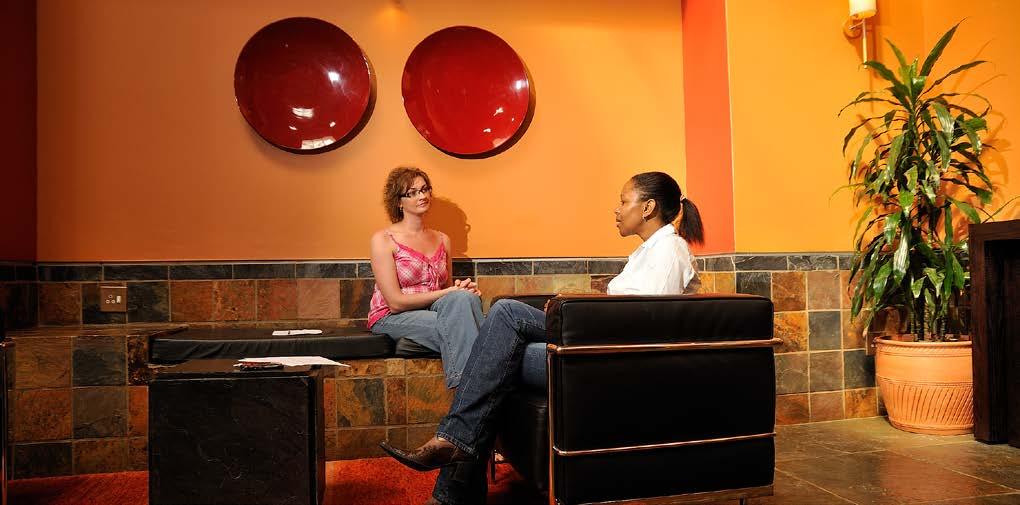
Through its Entrepreneurship Development Academy, GIBS has partnered with the Cherie Blair Foundation for Women to develop the business skills of women entrepreneurs of micro and small enterprises to improve profitability and sustainability of their businesses. The initiative is a collection of three programmes: HerVenture; Road to Growth; and Road to Leadership.
Relevant SDGs:



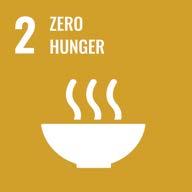
The HerVenture programme uses the Cherie Blair Foundation’s award-winning business skills learning app to strengthen the skills, knowledge and confidence that women entrepreneurs need to achieve business success at scale. The app is used at start-up and early growth stages of the business. After registering on the app, participants indicate their key interest areas, and receive a personalised learning journey based on individual business and personal needs. Other collaborating partners include DHL Express, SEDA and the Allan and Nesta Ferguson Charitable Trust.
The Road to Growth seven-week programme is offered to a selected group of 50 established women entrepreneurs who own and run their businesses. Focusing on building business skills, financial literacy, networks and confidence, hybrid training is delivered using a unique online learning platform alongside in-person classes. Topics
2022 Sustainable Development Report 53
covered include understanding and contextualising your market, digital marketing and communication, and understanding your finances. The Road to Leadership is a follow-on programme from the Road to Growth, and runs over three sessions, either online or face to face. The two programmes involve experienced faculty mentors who are successful entrepreneurs and industry leaders, and coaches providing guidance and support.
From 2021, over 4 200 women in South Africa have used HerVenture. In 2022, 96% implemented improved business practices and 75% improved their business performance. Of the 49 women who completed the Road to Growth Programme, 72% were more confident of business success, and 62% improved their business performance.
Relevant SDGs:
Influencing global policy and strategy
The Department of Taxation and the African Tax Institute are well recognised for their evidence-informed influence of regional and global policy.
In 2022, Professor Annet Oguttu of the Department of Taxation presented a report commissioned by the United Nations Economic Commission for Africa (UNECA), entitled ‘Towards a Global Legal Framework on Asset Recovery: A Holistic Approach to Illicit Financial Flows”. The report bridges the knowledge gap between stakeholders from a taxation, financial and criminal justice perspective to address the multifaceted problem of Illicit financial flows. Illicit financial flows are a key stumbling block to financing for development, and addressing the challenge is essential to achieving the United Nations 2030 Agenda for Sustainable Development. African countries in particular have lost vital resources through illicit outflows of their assets, stunting economic development. Building on findings and recommendations of the 2021 UN High-Level Panel report on International Financial Accountability, Transparency and Integrity for Achieving the 2030 Agenda, the UNECA report led to the development of a holistic global legal framework on asset recovery.
Following the publication of Property Tax in Africa – Status, Challenges and Prospects in 2017, co-edited by Professor Riël Franzen of the African Tax Institute, in 2022 the Lincoln Institute of Land Policy published Property Tax in Asia – Policy and Practice. The book, also co-edited by Professor Franzen, explores the impact of urbanisation on property values, and opportunities to enhance tax revenues. Interest in the findings led to the Fiscal Affairs Department of the International Monetary Fund initiating engagement with the authors.
Relevant SDGs:
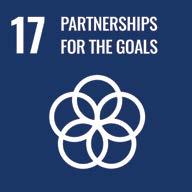




2022 Sustainable Development Report 54
“Illicit financial flows are a key stumbling block to financing for development, and addressing the challenge is essential to achieving the United Nations 2030 Agenda for Sustainable Development.”
Destination marketing and tourist behaviour

Recognising the impact of tourism on economic development, the Department of Marketing Management has conducted a range of research in collaboration with practitioners for more coherent collective action. Key outputs include a novel framework to bridge the research-practice divide, connecting visitor profiles to their desired experiences, providing insights into the challenges faced by emerging nations to generate tourism income sustainably, and determining key focus areas for the road to tourism recovery post the COVID-19 pandemic.
Energy economics and policy
Research by the Energy Economics Unit contributes significantly to the field of energy economics and policy. Research undertaken investigates diverse aspects such as the influence of institutional quality on power supply, the role of green technology in carbon emissions reduction, energy poverty measurement, and the relationship between renewable energy and retail electricity costs. Insights gained include highlighting the importance of transparent regulations, effective governance and efficient institutions in ensuring reliable power access; demonstrating that green technology substantially reduces carbon emissions across different income levels; and the economic feasibility and sustainability of renewable energy transitions.
Research done in collaboration with Genesis for Eskom provides valuable insights into the responsiveness of energy consumption to changes in price and income levels, supporting evidence-based decision-making and promoting energy efficiency. Additionally, research in collaboration with the German Development Cooperation highlighted the potential reduction in carbon emissions, nationwide benefits from transitioning away from coal-fired electricity, and the importance of ensuring a just transition in Mpumalanga.
Relevant SDGs:




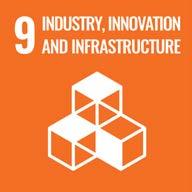
Relevant SDG:

2022 Sustainable Development Report 55
“Research done in collaboration with Genesis for Eskom provides valuable insights into the responsiveness of energy consumption to changes in price and income levels, supporting evidence-based decision-making and promoting energy efficiency.”
The WE DARE Network
The WE DARE Network focuses on gender-based violence, and is an international, multi-stakeholder, interdisciplinary network that facilitates the development of partnerships between researchers, industry, non-governmental organisations, policymakers, practitioners and communities. It is run by the Centre for Business Ethics at GIBS and the Responsible and Sustainable Business Lab at the Nottingham Business School.
Seeking to nurture a community of practice, the network draws on leadership across civil society, industry, government, academia and communities. It facilitates a multipronged approach where network partners co-develop and pilot local innovations, offer a space for disseminating information, offer emotional and physical support, and enable peer-to-peer learning and mentorship to support future leaders.
Recognising that there is no one-size-fits-all solution to eradicating gender-based violence, initiatives are context specific. Two initiatives underway with corporate enterprises are WE DARE and Hollard, and WE DARE and Woolworths, each involving the requisite network partners to support each initiative’s intent. A third collaboration with South Africa’s National Business Initiative is developing an online repository for initiatives, projects and actions of the network, as well as exploring optimisation of dedicated gender-based violence call lines in South Africa.
Relevant SDG:
Business Schools for Climate Leadership Africa (BS4CLA)
In collaboration with the UN Principles of Management Education (PRME), leading business schools in Europe and across Africa, and the Association of African Business Schools AABS), GIBS has been a driving force behind the formation of BS4CLA. Business Schools for Climate Leadership was initially founded in 2021 at COP 26 in Glasgow by eight leading business schools in Europe, aiming to make a meaningful contribution towards helping past, present and future leaders tackle the climate crisis.
In 2022 at COP 27 in Egypt, BS4CLA was founded by six leading business schools in Africa, with support from the European schools. GIBS is one of the founding members and is playing a key role in advancing it. Other founding members are the American University in Cairo, Stellenbosch Business School, ESCA Ecole de Management in Morocco, Lagos Business School and Strathmore University in Kenya.
After having established a baseline of current projects and initiatives underway by member schools, the network will formalise its strategic approach and collaborative projects to influence and support businesses to address the challenges of climate change across the African continent.

Relevant SDG:

2022 Sustainable Development Report 56
“Recognising that there is no one-size-fits-all solution to eradicating gender-based violence, initiatives are context specific.”
Food garden at UP Mamelodi Campus feeds and trains the local community
In 2019, the Department of Business Management’s first-year students on Mamelodi Campus established a vegetable garden following the completion of their module on the SDGs. Their objective was to raise awareness about the SDGs and enhance community participation in addressing challenges to food security in South Africa. The project is managed from the Mamelodi Business Hub, a UP initiative that offers entrepreneurial and business services to Mamelodi residents.

What began as a modest project has since thrived, and is a remarkable success through the unwavering dedication of staff and student volunteers. The initiative gained traction and further momentum in 2022 after the lifting of COVID-19 lockdown restrictions, expanding its scope to not only provide food to the community, but also offering valuable training to Mamelodi residents, enabling them to cultivate their own vegetables.
As a student-led initiative, the garden also integrates community engagement and service learning into the curriculum, supplementing students’ theoretical understanding of the SDGs with a practical component. Engagements extend to teachers and pupils at early childhood development (ECD) centres, introducing them to the concept of food gardening. Additionally, these centres receive fresh produce to support their feeding schemes. The experiences collectively demonstrate how collaboration can bring about incremental changes to improving people’s lives.
All the crops cultivated in the 20 metre by 20 metre plot on the campus are distributed free of charge among participants, students, volunteers and other beneficiaries, including local early childhood development centres and children’s homes.
Relevant SDGs:


2022 Sustainable Development Report 57
Graduate outputs Research outputs EMS 200 180 160 140 120 100 80 60 40 20 0 2018 2019 2020 2021 2022 provisional EMS 2 500 2 000 1 500 1 000 500 0 2018 2019 2020 2021 2022 Undergraduate PG Diploma Honours Master’s Doctoral GIBS 1 000 900 800 700 600 500 400 300 100 0 2018 2019 2020 2021 2022 GIBS 45 40 35 30 25 20 15 10 5 0 2018 2019 2020 2021 2022 provisional 2022 Sustainable Development Report 58
LIFE, OUR PLANET AND TECHNOLOGY
The life, our planet and technology cluster comprises the Faculties of Health Sciences (HS), Engineering, Built Environment and Information Technology (EBIT), Natural and Agricultural Sciences (NAS) and Veterinary Science (VS).
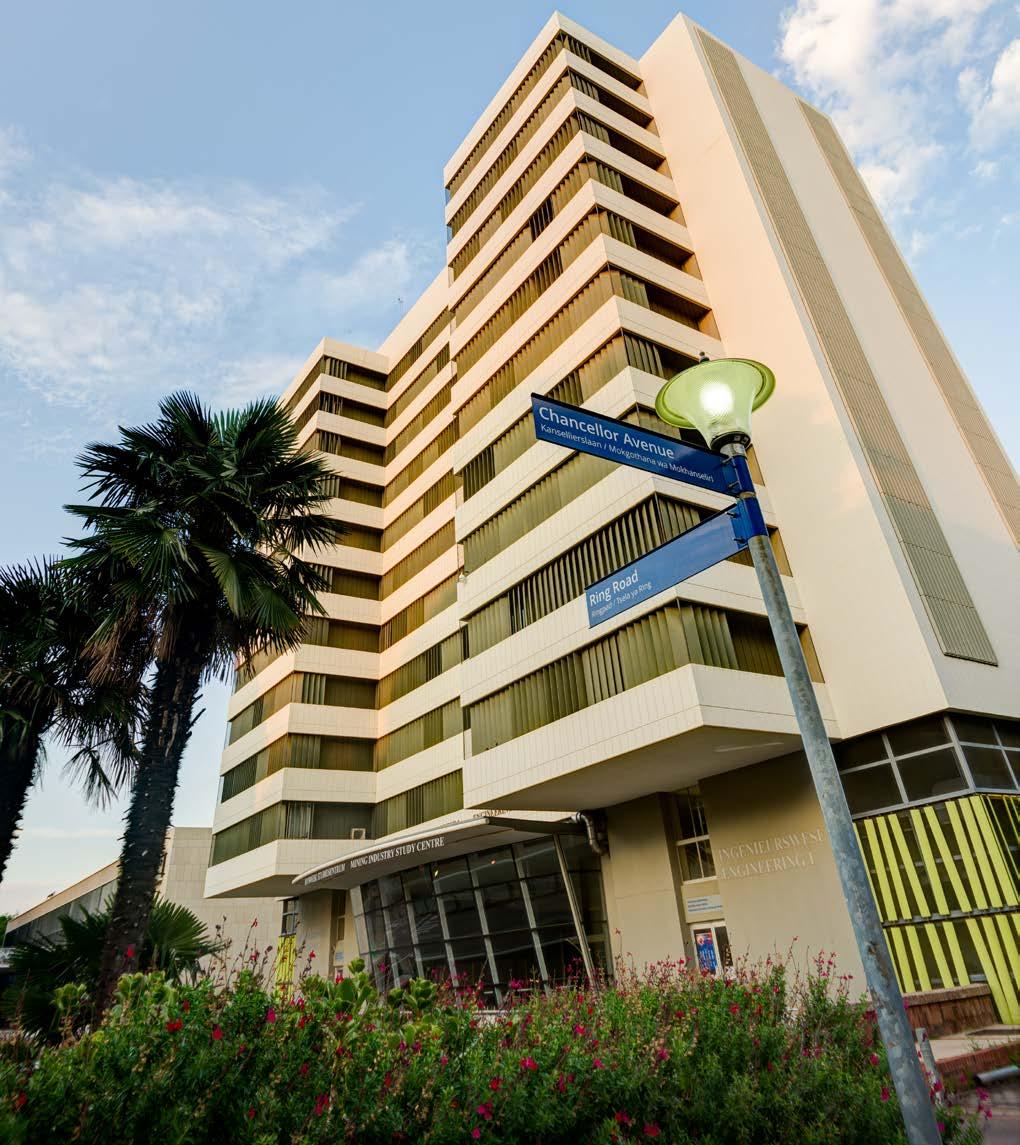
Our stories
Curriculum transformation in the Faculty of Health Sciences
Curriculum transformation in the faculty is a continuous and iterative learning process, as it develops responsive teaching and learning platforms that are aligned with the needs of today and the future. It is an inclusive process that is in the interests of both students and society. To this end, a new and innovative MBChB curriculum was in October 2022.
Review and renewal of the curriculum is multidimensional. In an important shift, the curriculum is being designed for students to begin clinical or practical training in their first year of study, with exposure to research at an early stage. Similarly, strengthening students’ and graduates’ understanding of their roles in society, and nurturing a sense of citizenship is an integral part of all programmes.
Curriculum content is being streamlined, moving away from historical silos, to a more integrated approach consistent with complex systems. At the same time, opportunities are being created to interact across disciplines. This is supported by training in “soft” skills such as empathy, compassion and resilience, which are critical for the successful 21st-century graduate.
Our transformative approach seeks to embrace innovation and keep abreast of technological developments, in particular digital technologies, which inform both learning processes and work practices. For example, training software packages
2022 Sustainable Development Report 59
linked to mannequins to assimilate real patients’ scenarios have been implemented in the skills laboratory. Related to this, new specialised training in anaesthesiology and surgery has been introduced.
Significant changes to the modes of assessment have also been introduced, incorporating various methods of continuous assessment.
Relevant SDGs:


Preparing our students for the world of work at the NAS Faculty
In line with societal needs and expectations, work-readiness is an increasingly important aspect of the successful graduate. This represents a dynamic challenge, and with a rapidly changing world of work, dimensions of readiness are context specific, and are likely to evolve as the future of work evolves. This is especially relevant to the NAS Faculty, which hosts a broad portfolio of disciplines and fields of study.
In response, a wide range of innovative activities are undertaken by the various departments to ensure fit-for-purpose work-readiness. Notwithstanding the distributed and organic approach, a common thread is that preparing students for the world of work is embedded into the various programmes. It is not a bolt-on, subsequent to degree completion, but closely connects theory and practice. Examples of our innovative approaches are manifold, but only a few will be presented, to represent the innovative and integrated approaches.

During the COVID-19 pandemic, lockdown restrictions necessitated a shift to online teaching and learning, inevitably increasing the challenge of enhancing work-readiness. The Department of Consumer and Food Sciences used reflective learning to hone higher order skills such as critical thinking, problem-solving and metacognition, and to evaluate the extent to which students were developing the employability skills required by industry. Through an iterative four-stage process, students went through online teaching and learning experiences, and their related actions for learning and practice. They were asked to reflect on various aspects of self and their experiences in the process, to make sense of these experiences and the relevance of the skills honed. The last stage was to build competencies for use in their next experience.
The Department of Plant and Soil Sciences exposes second-year students to composting in a way that links theory and practice, circular economies and sustainable development. Working in groups of 10 to 12, over the semester, each group creates a unique mixture of composting material. Decomposition is monitored weekly, and is supplemented with nutrient analyses and compost yield calculations at the end. Compost made is used in third and fourth year Soil Science practicals. In the process, students learn important graduate attributes and research principles. Transferrable competencies include teamwork, problem-solving, critical thinking, technical skills, creativity, interpersonal and leadership skills, and thinking about future sustainability.
2022 Sustainable Development Report 60
In collaboration with the African Economic Research Consortium, the Department of Agricultural Economics, Extension and Rural Development hosts master’s students on a collaborative programme in applied and agricultural economics. Agriculture and Rural Development is one of the four foundation streams, and through the year, three sets of activities prepare students for the work environment. Following exposure to different theoretical perspectives, students undertake an excursion to major institutions that demonstrate and drive development. This assists students to reimagine their vision of development and expand their thinking and imagination from smallholder agriculture and underdevelopment, to large-scale institutions and advanced development practices. They also test theory with practice. The second set of activities is a teambased project to evaluate key African initiatives such as Agenda 2063 and the African Free Trade Agreement in relation to development. In the last set of activities, students adopt and profile their own villages and localities, to ground them in their places of origin and to understand development in particular contexts.
Relevant SDGs:
Data-driven decision-making in EBIT
The increasing importance of data science, analytics and data-driven decision-making in engineering and related programmes has implications for curriculum transformation and student success.
As part of curriculum transformation and equipping students for the future, the faculty is strengthening the incorporation of data science and analytics into courses or modules. This includes covering topics such as data visualisation, statistical analysis, machine learning and optimisation techniques. By equipping students with the necessary skills in data analysis, they will be better prepared to leverage the power of data in engineering problem-solving and decision-making.
Data-intensive decision-making also plays a pivotal role in successful student outcomes and degree completion in minimum time. Through comprehensive data analysis and interpretation, we derive significant value from examining data related to student enrolment, course completion rates, academic performance and faculty productivity. This enables us to identify bottlenecks, inefficiencies and areas of improvement within our programmes. These insights allow us to streamline curriculum delivery, allocate resources effectively, and implement targeted interventions to enhance throughput. Data-intensive decision-making empowers our faculty members to make informed choices, optimise learning environments, and improve student progress on their academic journeys. For instance, it assists with determining credit loads for the successful completion of certain programmes, predicting first-time completion of project modules, and establishing a framework for hybrid teaching. We can proactively address challenges, improve retention rates, and ultimately enhance the quality of education and the overall success of students within our different degree programmes.
Relevant SDGs:







2022 Sustainable Development Report 61
Primary animal healthcare training – an innovative and integrated approach
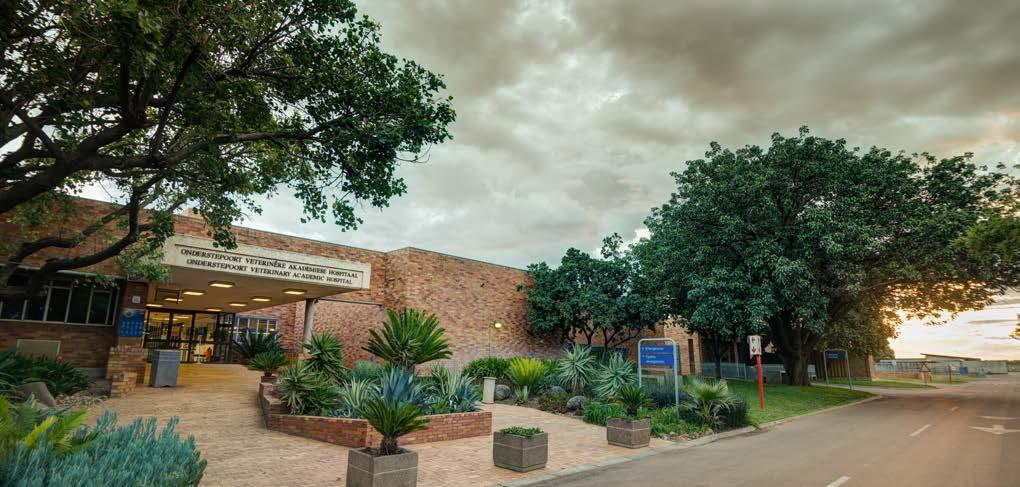
Led by the Afrivet Chair in Primary Animal Health Care (PAHC), within the Faculty of Veterinary Science’s Department of Production Animal Studies, PAHC training focuses on health management and good production practices related to livestock. The innovative and integrated approach is multifaceted, spanning teaching and learning of veterinary science students, community engagement and capacity building of smallscale farmers, collaboration with other stakeholders, strengthening work-readiness, contributing to the improvement of rural production systems, and boosting food security. The programme is particularly important in South Africa’s dual agricultural economy, which comprises a well-established commercial farming industry, and a struggling, emerging small-scale rural farming sector.
Students in their clinical years are taught PAHC theory and practice, and approaches to formulate and apply context-specific extension strategies for particular communities. They then engage in knowledge transfer to farmers during scheduled, supervised visits, with farmers being trained on various aspects such as disease prevention, early disease identification, record-keeping and optimisation of communal production systems. Training materials may be translated into local languages, and some farmers are able share their knowledge further in farmer-to-farmer peer training.
Outreach has extended beyond the Gauteng province, with training having been undertaken in the provinces of Mpumalanga, KwaZulu-Natal and the Eastern Cape. The process is supported and enabled by a rich network of relations, including tribal authorities, local livestock associations and state veterinary structures. These enable access to, and continued engagement with communal farmers, and support from local extension officers and animal health technicians is provided beyond the PAHC training.
Through this innovative and integrated approach, multiple streams of value are evident. In addition to building their professional knowledge, students are exposed to the unique socio-cultural dynamics, challenges and opportunities of rural production systems. They learn how to develop training material and deliver training to diverse audiences, taking into consideration language and literacy levels. Collectively, students are better prepared to serve rural communal farmers during their compulsory oneyear community service, which is a prerequisite for graduates to be fully registered to practice as veterinarians in South Africa. Communities faced with the challenges of poor education, poverty, unemployment and limited access to veterinary services, gain knowledge and skills on better livestock care and improved productivity. At a societal level, rural production systems and community livelihoods are improved, and food security is strengthened.
Relevant SDGs:





2022 Sustainable Development Report 62
Using artificial intelligence to understand and improve our research contributions to the SDGs
A historic challenge faced, is that work in different disciplines often occurs in silos with a limited understanding of the whole. During the year, the EBIT Faculty initiated work to elevate and consolidate work on SDGs in the faculty, and obtain a bird’seye view using artificial intelligence (AI). This would provide an evidence-informed quantification and understanding of SDG-related research within the faculty and identify gaps and overlaps.

Led by the leadership team, the faculty engaged with the UP SDG Hub to explore the AI and analytic tools they were utilising, and with the Department of Library Services to develop a repository of EBIT publications with sufficient information to apply the SDG Hub’s AI tools effectively. Some 4 200 EBIT publications between 2015 and 2022 were mapped according to source, publication date and content. Using machine learning, the SDG focus based on content was determined. This information could be disaggregated to departmental levels, or consolidated to a faculty level.
Beyond quantifying and mapping our SDG-related work, the process enables us to evaluate alignment to our and the University’s strategic priorities and identify further opportunities for internal collaboration and more significant impact.


Relevant SDGs:



2022 Sustainable Development Report 63
“Some 4 200 EBIT Faculty publications between 2015 and 2022 were mapped according to source, publication date and content.”
Leadership for sustainable futures

Many global attempts to deal with the current scale and increasing frequency of social and environment-related crises have failed to deliver systemic solutions and ensure a sustainable future for humans and the multiple ecosystems that underpin human well-being. These challenges no longer present themselves in singular form or in a linear fashion, but emerge simultaneously as complex interrelated systems that require unprecedented levels of understanding, and the application of innovative solutions.
Unsuccessful responses to global sustainability challenges have largely been undertaken in relation to economic progress and financial survival, reflecting the dominance of managerialism in how these challenges are seen and addressed. Looking through this constrained lens, simply “managing” climate change, for instance, points towards a lack of understanding of larger systemic fault lines in society. This calls for a more nuanced, practice-orientated view on global leadership, with a much stronger focus on relations and interactions, to foreground and integrate diverse system dependencies.

The NAS Faculty and the Albert Luthuli Leadership Institute are undertaking collaborative, transdisciplinary research of the topic of leadership for sustainable futures. The research explores multiple points of view on the similarities and differences between leadership and management, to ensure a balanced view on how each may contribute towards a sustainable future. The collaboration is also studying a more nuanced, practice-based understanding of leadership, along with the leadership capabilities needed to address the compound existential challenges presented by anthropogenic climate change and its effect on accelerating biodiversity loss, natural disasters, degradation, socio-economic challenges and conflict.
Relevant SDGs:











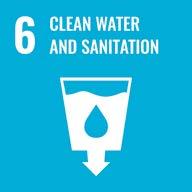





2022 Sustainable Development Report 64
UP leads Nuclear Medicine Research Infrastructure development
The University of Pretoria is playing a lead role in the Nuclear Medicine Research Infrastructure (NuMeRI) development, an initiative which is part of the South African National Department of Science and Technology’s (DST)
. Set up as a not-for-profit company, NuMeRI is a collaborative and distributed network which, when fully completed, will comprise a pre-clinical imaging facility at Necsa, Pelindaba, the PET Centre for Infection Imaging managed by Stellenbosch University at Tygerberg Hospital, a facility at iThemba LABS, and the main centre (hub) led by UP’s Faculty of Health Sciences and Steve Biko Academic Hospital. NuMeRi aims to be a world-class medical imaging and theranostics facility dedicated to drug development and clinical research for academia and commercially driven pharmaceutical and biotechnology companies.
The hub is strategically placed at the Steve Biko Academic Hospital, which has a strong track record in high-quality tertiary healthcare provision and community involvement. It is home to some of the country’s leading medical experts. At completion it will be equipped with a research cyclotron, a research GMP radiopharmacy production facility, a commercial cyclotron, a commercial GMP radiopharmacy production facility, and state-of-the-art preclinical and clinical imaging modalities.

NuMeRI’s cutting-edge pre-clinical drug screening platform and clinical research programme will span a significant range of diseases and conditions of national importance, and will provide tools for individualised diagnostics and therapeutics.
Relevant SDGs:


2022 Sustainable Development Report 65
Mnisi – an emerging transdisciplinary platform in the field
Over the past 13 years, the Faculty of Veterinary Science has established a footprint in the Mnisi set of communities bordering on the Kruger National Park. Its infrastructure includes the Hans Hoheisen Research Station and a community animal clinic, although its influence extends far beyond bricks and mortar, through deep community relationships with a variety of stakeholders. The area has a wide array of complex developmental challenges, mirroring the face of many rural communities across South Africa. These include stark poverty and inequality, stunted economic growth, and a society in transition with unplanned rural urbanisation and shifts in traditional relationships and living practices.
The faculty’s philosophy and approach is to leverage animal health and well-being for positive impacts on humans and the social space; economic development and sustainable communities; and environmental protection and renewal. Building on the established foundation in the Mnisi area, expanding its capability and focus of efforts represented a clear opportunity to advance UP’s strategic intent to drive a transdisciplinary agenda that addresses complexity for transformative societal impact. To this end, the faculty hosted a series of conversations involving leaders and academics from multiple faculties, along with research chairs from Future Africa, and representatives from the Executive Office to co-design an approach to multi- and transdisciplinary collaboration in this area.
The first step was an onsite “walk-shop”, a multidisciplinary field trip to the UP facilities and Hluvukani Community Clinic, with outreach involving various engagements with Mnisi community structures and members. This allowed meaningful and first-hand experiences through multiple lenses, and from different perspectives. The walk-shop was followed by deep reflection and “sense-making”, which moved into a strategic conversation that brought the dialogue into focus, clarified the concept and desired future, developed an approach that translates the ideas into reality, and established a coherent set of actions going forward.
In this co-designed concept, Mnisi is a platform in the field, and immersed in the community. Research, teaching, learning and engagement are undertaken across the mono- to transdisciplinary spectrum, traversing political, economic, social and environmental ecosystems and their interfaces. In undertaking work, selecting a nexus issue increases the potential for leverage, high-impact and multiple value streams. The mix of collaborators is determined by the nature of the issues being addressed, drawing the requisite voices from the relevant disciplines and sectors. The principles of co-design, risk-sharing and mutual benefit are foundational, and serve to build trust across stakeholders and strengthen the ownership and sustainability of initiatives. A strong focus is placed on being action-orientated, and using pilots as experiments. Transfer of the principles underlying successful pilots enables appropriate adoption and adaptation to different contexts. Given that the faculty’s University role is not in scaled implementation, it functions as a facilitator and catalyst through implementing partners.
The initiative is positioned as a physical platform for UP’s established One Health and Sustainable Food Systems programmes. Additionally, two transdisciplinary task teams have been set up and have started mapping stakeholders, and the political, economic, social and environmental ecosystems; exploring the historical evolution of Mnisi to learn from successes and failures; and running an initiative for integrated data collection.
Although still in its early days, the co-designed approach and shift towards evidenceinformed and collaborative action, have set the scene for transformative impact in an area where this is needed most.
Relevant SDGs:



2022 Sustainable Development Report 66
Sci-Enza’s holiday programme returns
Sci-Enza is the oldest interactive science centre in South Africa. Open to students and the general public, it is a truly integrated science, engineering and technology (SET) centre. School learners are a particularly important audience, as Sci-Enza is a critical entry point to expose them to the world of science, nurture a relationship with the University, and embed a spirit of lifelong learning.
After a two-year break due to COVID-19 restrictions, in October 2022 Sci-Enza hosted its celebrated holiday programme for primary school students. Themed ‘Nature Frenzy’, the programme involved a wide span of topics related to nature. Activities included engaging and interactive talks, various hands-on workshops, and fun, educational and nature-inspired games.
In one of the activities, learners went on a rock hunt around campus, looking for different types of rock and learning about their classification, formation and functions. In a soil workshop, they experimented with different types of soil, exploring their properties such as water absorption, and learning about ideal soils for planting. In another example, a game focusing on biomes was played, with participants learning the taxonomy classification of various animals belonging to different biomes. Faculty members are actively involved in the programme.
Going forward, the science centre will be extending outreach, with planned visits to 19 schools in the Tshwane area. The outreach programme will focus on coding and robotics, reaching around 1 500 foundation and intermediate phase learners.
Relevant SDGs:




2022 Sustainable Development Report 67
Graduate outputs
Undergraduate PG Diploma Honours Master’s Doctoral 2 500 EBIT 2 000 1 500 1 000 500 0 2018 2019 2020 2021 2022 2 500 Health Sciences 2 000 1 500 1 000 500 0 2018 2019 2020 2021 2022 1 600 NAS 1 400 1 200 1 000 800 600 400 200 0 2018 2019 2020 2021 2022 300 Veterinary Science 250 200 150 100 50 0 2018 2019 2020 2021 2022 2022 Sustainable Development Report 68
Research outputs EBIT 450 400 350 300 250 200 150 100 50 0 2018 2019 2020 2021 2022 provisional Health Sciences 350 300 250 200 150 100 50 0 2018 2019 2020 2021 2022 provisional NAS 600 500 400 300 200 100 0 2018 2019 2020 2021 2022 provisional Veterinary Science 120 100 80 60 40 20 0 2018 2019 2020 2021 2022 provisional 2022 Sustainable Development Report 69
INCLUSIVE SOCIETIES AND CAPABLE INSTITUTIONS
The inclusive societies and capable institutions cluster comprises the Faculties of Education, Humanities, Law and Theology, and the Mamelodi Campus.

youth are unemployed, education is clearly a priority. In meeting the ideal of equitable qualification, and in the spirit of lifelong learning, it is also essential for qualified teachers to remain abreast of developments in the rapidly evolving field of education.
Our stories
Advancing
the professional development of teachers
Recognising the need for sufficient high-quality teachers nationally and across the African continent, during the year the Faculty of Education embarked on the establishment of a Centre for Professional Development. Broadening access to, and the provision of quality education is central to achieving national priorities and the SDGs. In a country in which some 7% of matriculants enter public higher education, 12% enter other forms of further and higher education, 30% acquire a job and around 51% of
The proposed Centre for Professional Development explores the possibility of focusing on the professional development of teachers at all stages of their career. In doing so, it is envisaged to bring together work of the UP Pre-university Academy (PUA), the Unit for Distance Education (UDE), the Work Integrated Learning Office, and possibly the LittUpLab. The PUA broadens educational pathways of high school learners and encourages them to pursue tertiary education. It complements the curriculum of the schooling system through a targeted enrichment programme in STEAM (science, technology, engineering, arts and mathematics) subjects and enhances their readiness for university study. Potential talent is identified and student outcomes are improved.
2022 Sustainable Development Report 70
The UDE broadens access to a range of teaching qualifications, specialising in various BEd honours and undergraduate advanced diploma programmes. A dramatic increase in demand and student uptake has been evident over the past few years, underscoring the value of the programmes offered. The Work Integrated Learning Office is responsible for facilitating, coordinating and managing the teaching practice process at the University as required by minimum requirements for teacher qualifications. Education students are required to do school-based work integrated learning (WIL) and this forms an integral part of the programmes offered in the faculty.
In responding to the challenge that existing educational pedagogies for both school and university levels are not adequately addressing in terms of preparing learners for the future of work, it is anticipated that research on the science of teaching and learning would be tested in the different parts of the centre as living laboratories. Overall, it is intended that the centre will play a significant role in improving the quality of teachers for better learner outcomes across the continent. Their ongoing development will enable them to be more creative, confident, adaptable and prepared professionally, extending their in-depth subject knowledge to cope with changing curricula and societal needs.
Relevant SDG:

Developing graduates for the future and preparing them for the world of work
The Faculty of Theology and Religion practises an integrated approach to teaching, learning, research and engagement by connecting communities of faith, communities of scholars and broader society. The approach is embedded into the curriculum which is being transformed in an ongoing and iterative way, so that graduates are developed to enable diverse career paths within ministry or beyond.

Drawing from life-affirming theologies with critical reading of texts from religious, historical and life experiences, concepts are applied to the human and social contexts for interpretation, “sense-making” and understanding that is relevant to particular contexts. Recognising the connectedness of theology and religion to social, politicolegal, economic and environmental ecosystems, the faculty has extensive linkages with other faculties for elective modules, and cross-faculty collaboration in research projects. The faculty’s transdisciplinary themes have a strong sustainability and SDG focus, and give full expression to the integrated approach. They cover religion and sustainable development; religion and science; inclusive cities and communities; and economy, ecology and theology.
In this way the faculty seeks to develop graduates who have broad perspectives, are able to navigate complexity, and are transformative leaders who will serve academic and faith communities, and society at large.
2022 Sustainable Development Report 71
“The ongoing development of teachers will enable them to be more creative, confident, adaptable and prepared professionally to cope with changing curricula and societal needs.”
During 2022, the faculty hosted its first career fair in collaboration with UP Career Services. The initiative served two broad purposes: exposing potential employers to students to increase their employment opportunities on graduation; and exposing student to different stakeholders, to expand their vision on possible future careers. Seventeen stakeholders participated as exhibitors, including the National Defence Force, the Tshwane Leadership Foundation, the Centre for Public Life and Security in Africa, and SOS Children’s Village. These illustrate the diverse spread of career paths available to students. Following its resounding success, the career fair will be instituted as an annual event.
Relevant SDGs:
Interrogating Roman Law in the sustainability context
Central to the Faculty of Law’s mission, is to provide relevant legal education and undertake research that is relevant and grounded in social justice and excellence. The faculty develops LLB graduates with the required knowledge, critical thinking abilities, awareness of social and ethical responsibilities and the legal skills to follow any of the established career paths in law. With this aim in mind, UP Law is progressively placing greater emphasis on an enquiry-led teaching, learning and research model, to improve the investigation and problem-solving skills of students, while simultaneously ensuring that they are work-ready as graduates.
During the year, the approach was exemplified in the Roman Law module. Students grappled with issues related to SDGs 5, 10 and 16 which speak to gender and other forms of inequality, and peace, justice and strong institutions. They investigated whether the Roman Res Publica was truly a democratic government based on the principles of separation of power, or whether, despite the sheen of a “republic for all”, it remained a fundamentally undemocratic society in practice, governed by biased and discriminatory power structures. The position of women and slaves was explored, along with the right to vote, and government structures which purported an inherently unequal and discriminatory society. The type of “formal equality” that existed in Rome was compared with the distinction between formal and substantive equality in today’s democratic South Africa.



The critical value of these conversations is that they explore the deeper reasons why the equal enjoyment of rights and freedoms is not achieved in practice, and with their related complexities, help to focus solutions on the underlying causes.
Relevant SDGs:



2022 Sustainable Development Report 72
Enacting a pedagogy of compassion
A “pedagogy of compassion”, a conceptual and theoretical framework developed at the University of Pretoria, has been used as a possible approach to addressing and transforming education in post-apartheid South Africa. It brings together the attributes that define a progressive teacher and transformative intellectual, with a passion for students and an epistemology of compassion. It also recognises the requirement for students to be actively involved in the learning process, and to foster social cohesion. As an implementation framework, the pedagogy of compassion comprises three tenets: dismantling polarised thinking and questioning one’s ingrained belief system; changing mindsets – compassionately engaging with diversity in educational spaces; and instilling hope and sustainable peace.
Influenced by contemporary youth-led movements toward justice, and polarising, adult-centric discourses driving anti-black, and anti-immigrant sentiment, the University of Pretoria and Michigan State University (MSU) have undertaken collaborative work to pilot and scale innovative curricular approaches at the interface of education, culture and youth empowerment. The initiative has focused on decolonising teacher preparation programmes in the United States of America and South Africa, through purposeful redesign of curriculum and teaching approaches. Leveraging local knowledge and decolonial approaches, pre-service teachers are positioned to affirm and extend the identities and experiences of marginalised youth. Additionally, the teaching and artistic practices of writers, artists, filmmakers and artisans are amplified. The initiative is part of a long-term research-driven partnership between teacher educators at UP and MSU that seeks to have a broader impact on transforming lives over time, and to secure more just social, cultural and cognitive futures.
Relevant SDGs:
The evolution of the Centre for Human Rights (CHR) into a transdisciplinary platform
The Centre for Human Rights is hosted in the Faculty of Law, and collaborates with different faculties, universities and entities outside of the higher education sector. Its evolution into becoming a transdisciplinary platform provides key insights for institutional learning on the different pathways through which transdisciplinary work can emerge.
At its inception in 1986, the centre had a relatively narrow focus, forming part of domestic efforts against the apartheid system, and engaging in activities related to human rights in South Africa. Given the fundamental nature of human rights, and their intimate relationship across multiple facets of human existence, the centre’s focus progressively broadened over time, with the development of distinctive capability in transdisciplinarity. Currently it has an array of units which interface across politicolegal, economic, social and environmental domains, and has an unmatched network of practising and academic lawyers, national and international civil servants, and human rights practitioners across the entire continent. Demonstrating their wideranging focus, the units address nexus issues such as democracy and civil engagement, business and human rights, women’s and children’s rights, and environmental justice.
Testimony to its leadership positioning, the centre has received major accolades and awards, including the UNESCO Prize for Human Rights Education in 2006, and the Human Rights Prize for civil society organisations from the African Commission on Human and Peoples’ Rights in 2012.
Relevant SDGs:









2022 Sustainable Development Report 73
Innovation and technology connecting graduates with potential employers
Youth unemployment is a significant challenge in South Africa. Despite attaining a university degree, some graduates lack the competencies need to increase their employability, secure a job or venture into entrepreneurship.
In early 2022, UP academics from the Departments of Historical and Heritage Studies, and Business Management, along with Career Services participated in the four-day Erasmus SUCSESS project workshop focusing on student employability. The initiative, which involves six universities, focuses on strengthening university-enterprise cooperation in South Africa to support regional development. Central to the initiative is enhancing lifelong learning, social innovation and inclusivity. A dedicated focus of the project is to explore ways to reduce youth unemployment in South Africa and increase student employability.
As part of the process a Hackathon was run, with four teams each having to identify a problem, devise a technological solution to enhance student capabilities and improve their employability, and develop an application to enable the solution. Winning the Hackathon, the UP team developed an app and website to bridge the gap between academia, students, career services and industry. The app will increase student selfawareness, close the information gap between identified stakeholders, and enable their collaboration. The linked website will showcase students’ capabilities and give industry the opportunity to select and employ students from this pool.
Overall, the workshop and Hackathon provided an innovative learning experience, with the development of real solutions to improving student employability and reducing youth employment.
Relevant SDGs:


Making mediation efforts throughout Africa more effective
The Centre for Mediation in Africa (CMA) is hosted by the Department of Political Sciences in the Faculty of Humanities. Combining teaching, learning, research and engagement, the centre undertakes a wide range of activities to make mediation efforts throughout Africa more effective. These include teaching postgraduate courses on mediation; training senior government officials in mediation skills; contributing to research on SDG16, including research into non-state actors in mediation processes; partnering with other universities to expand the centre’s teaching and research reach; assisting regional and sub-regional bodies and governments involved in mediation; and hosting public and off-the-record seminars on mediation efforts and best practices in Africa.
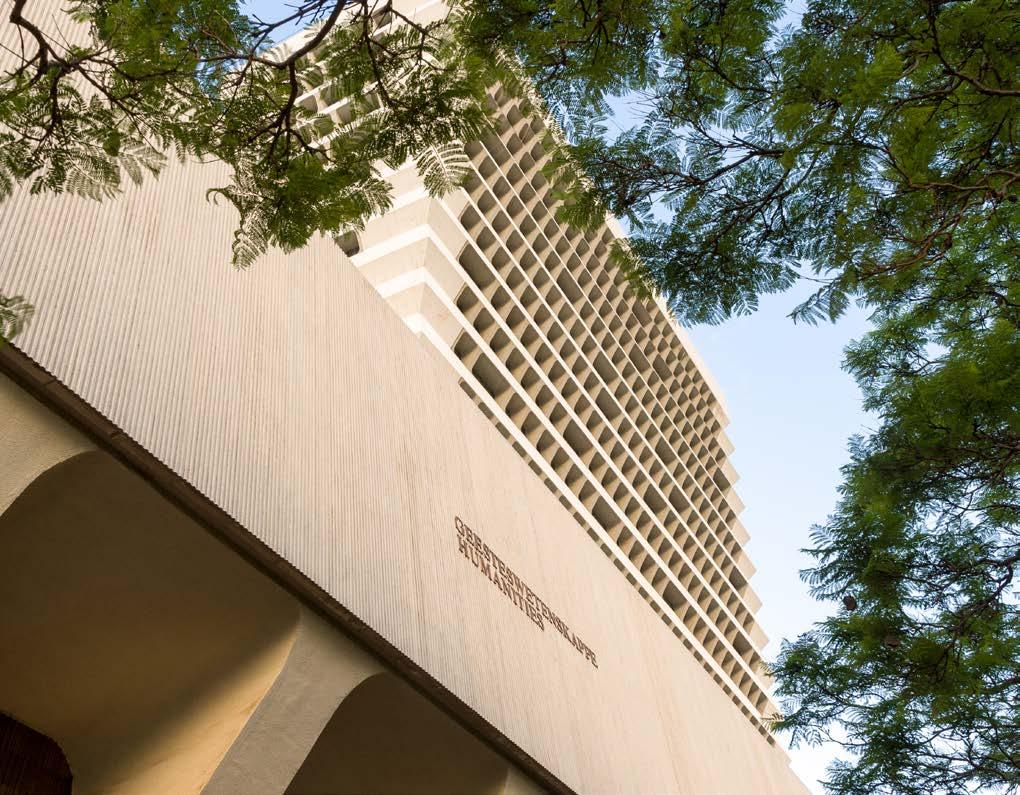
2022 Sustainable Development Report 74
As a leading agent for mediation, the CMA is radically rethinking mediation in Africa. This includes envisioning mediation as much more than direct third-party interventions, and including processes that create the right environment for people to transform themselves, their own conflicts, and their relationships in ways that empower them to engage in future conflicts non-violently and constructively. Combining researchers and practitioners, the centre is engaged in rigorous work that critically addresses, among others, questions around decoloniality, the inclusion of women, traditional leadership, African knowledge systems, and digital transformation in reimagining and transforming how mediation is theorised and practised in contextual terms.
Three long-term project streams are underway and continue to evolve over time, contributing to knowledge sharing and mutual learning. The High-Level Mediation and Negotiations Training in Africa (HLMNTA) is a multistakeholder collaboration that offers three-yearly training programmes and hosts the prestigious Gertrude Shope African Dialogue Forum annually. The Traditional Leaders and Conflict Mediation (TLCM) stream seeks to inform policy and practice in relation to how traditional leaders, and particularly women leaders, are perceived and thus integrated into governance, justice and conflict mediation processes. The third stream, funded by the International Labour Organisation and UP, focuses on the role of business in South Africa’s transition to democracy (BiTSA).
Going forward, the centre will continue its meaningful contribution to a transformative and inclusive understanding of mediation that adequately responds to conflict in all its complexity, builds constructive relationships, and leads to sustainable peace that is owned and lived by all members of a society.

Relevant SDGs:

Schools as enabling places in South African rural communities
Teaching, learning and research in the Faculty of Education are guided by the intent to advance human-centred education in complexity. This is exemplified by the Centre for the Study of Resilience’s research and the development best practice on schools as enabling places to improve learning and health-related quality of life for primary school children in rural South Africa. In this collaborative project, the research was led by coprincipal investigators from UP and University College London. Other partners are the University of Limpopo and London South Bank University.
The Enabling Schools Project assists school leaders, teachers and community members in working together to build and foster a “reading for enjoyment” culture that enables children to learn better, feel happier and be healthier. This whole-school intervention was led and coordinated by an Enabling School Committee comprising school leaders, foundational phase teachers and school-community members in each of the participating schools.
In consultation with the Department of Basic Education: Directorate Rural Education, the project was implemented in 10 well-managed schools in the Mahikeng and Ngaka Districts of the North West province. Processes included pre-intervention training, and a series of dialogues with school principals, teachers and community reading champions. A Participatory, Reflection and Action (PRA) methodology was used with iterations of consultation and consensus discussions throughout the project.
2022 Sustainable Development Report 75
“The Enabling Schools Project assists school leaders, teachers and community members in working together to build and foster a ‘reading for enjoyment’ culture that enables children to learn better, feel happier and be healthier.”
Key open-access outputs included a co-designed and learnergenerated storybooks. The toolkit comprises a series of guidance documents and supporting resources to strengthen school leadership teams; harness the skills and commitment of teachers and community members to develop a “reading for enjoyment” culture for learners; and embed a “reading for enjoyment” culture in schools. The 305 learner-generated storybooks developed were co-created with 1 951 foundation phase learners, foundation phase teachers, community reading champions and fieldworkers. All topics are aligned to the Department of Basic Education’s Curriculum Assessment Policy Statement, and include topics such as citizenship, education, family and community, health, nature and well-being.
Relevant SDG:
UP tackles low literacy skills at schools
In 2022, the Fostering Life-Long Learning team from the Department of SpeechLanguage Pathology and Audiology in the Faculty of Humanities launched an initiative to encourage a love of reading, and to improve literacy levels among learners in Gauteng schools. It is a multistakeholder collaboration, and is anchored in the premise that sufficient literacy skills are a prerequisite for successful learning. Collaborating partners include the Tshwane North branch of the Gauteng Department of Education, the World Literacy Foundation, Sun Books and the National Reading Coalition.
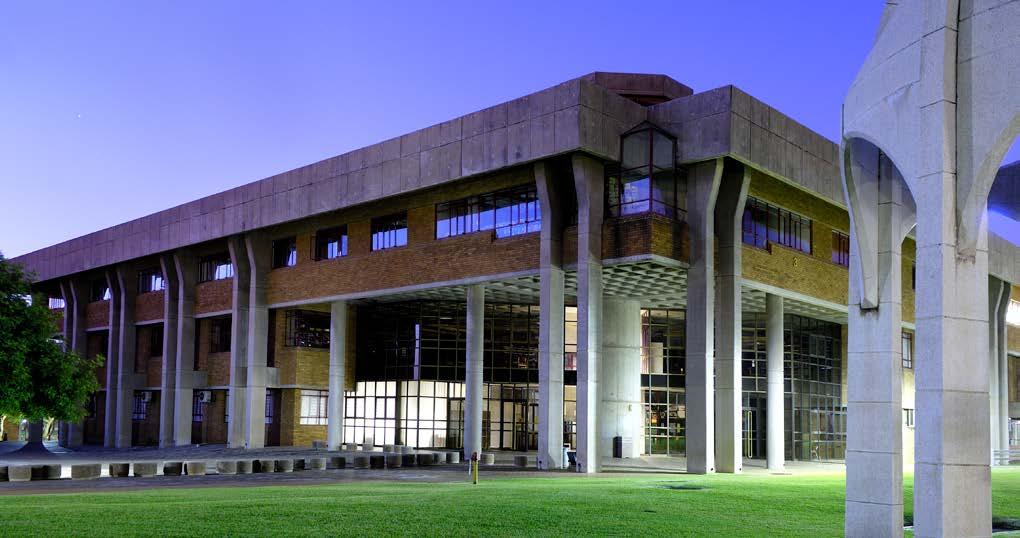
The team led by lecturers from Speech-Language Pathology also involves students. Schools are selected by the Tshwane North Department of Education, and on “reading days” students read stories to learners before playing fun and educational games based on the stories. Additionally, electronic materials to improve reading and spelling skills are loaded onto tablets sponsored by Sun Books and the World Literacy Foundation.
The initiative is currently focusing in on preschool and primary school levels, recognising the importance of improving literacy skills in the early years. In time, outreach will be expanded to secondary schools, children’s homes and retirement homes.
Relevant SDG:


2022 Sustainable Development Report 76
Counting those who, for many, do not count for much
In 2022, the Centre for Faith and Community in the Faculty of Theology and Religion led the first-ever Tshwane Homeless Count. The count was hosted by the Unit for Street Homelessness, the Tshwane Homelessness Forum and the City of Tshwane, with Bloomberg Associates and Statistics South Africa playing an advisory role. Through the census, an additional 4 000 homeless people were identified and documented, and their needs more carefully catalogued.

As part of the centre’s homelessness research, the count provided data for strategic and budgetary purposes, and contributed to the development of research methodologies to enumerate populations that are difficult to count. Accurate data helps to clarify the distribution of people across the city, the various causes of homelessness and evolving trends. It serves as a basis for developing more effective solutions for the related social challenges. More extensive information and deeper insights also enable the centre to play a more effective advocacy role for the protection of the rights of homeless people, and develop a more systematic approach to addressing the scourge.
The census is a clear example of the centre’s engaged research, with deep local immersion in communities, bringing together academics, activists, practitioners and community members to collaborate as equals, and sharing diverse experiences and knowledges. New partnerships are facilitated and ownership for urban change is fostered.
Relevant SDGs:



2022 Sustainable Development Report 77
“The census is a clear example of the centre’s engaged research, with deep local immersion in communities, bringing together academics, activists, practitioners and community members to collaborate as equals.”
A living laboratory for societal transformation
The UP Mamelodi Campus is situated in the heart of the Mamelodi township, and is an integral part of the community. Greater Mamelodi has a sprawling and growing geographic footprint, and hosts a population of around 1 million people. The heterogenous community comprises mixed formal and informal settlements and economic enterprises, and has a rich culture mixed with the impacts and residual legacies of the apartheid system. As a common face of many South African peri-urban townships, its landscape is replete with complexity and barriers that constrain just and inclusive societal development. Stark poverty, inequality and unemployment are evident, with failing municipal service delivery and high levels of crime. Notwithstanding the challenges, Mamelodi also represents a vast pool of untapped human talent and potential, with a growing youth population and widespread aspirations for a better life.
During the year, the appointment of new leadership of the Mamelodi Campus presented an opportunity to take stock of our approach and progress to date, address challenges and build on successes, and seek to realise the campus’s full potential as a lead agent for social innovation, transformation and societal impact. Central to this self-reflection was to clarify and articulate the Mamelodi Campus concept as the means by which it advances the University of Pretoria’s strategic agenda for meaningful societal impact.
The campus serves as an accessible gateway to transformation. It has intentionally softened the boundaries between the campus and the Mamelodi community, making them more porous. Within the campus, people enter a living laboratory that nurtures innovation and serves as a catalyst for transformation. Through our core functions we have a range of initiatives that build capability in individuals or groups, thus enabling them to respond to challenges or capitalise on opportunities, both now and in the future.
Examples of initiatives include training local women in home industries and commercialisation of activities; preserving, curating and sharing the history of Mamelodi; working with preschool teachers to strengthen early childhood development (ECD); and our extended curricular programme (ECP). A particular innovative initiative focuses on training preschool teachers in the establishment and running of sensory gardens. These gardens use a range of features to stimulate the senses, and thus
improve health, mood and cognition. They can also serve as outdoor classrooms to teach STEM-related concepts. Through the training, 12 sensory gardens have been set up in surrounding ECD centres.
The suite of Mamelodi Campus initiatives individually and collectively drive transformative societal impact reflected in social cohesion, social justice, and just and inclusive societal development.

Relevant SDG:

2022 Sustainable Development Report 78
A LIVING LABORATORY: INNOVATOR AND CATALYST FOR TRANSFORMATION
Teaching, learning and research
An accessible gateway to transformation –integral to both UP and the Mamelodi community
Enriching, uplifting and strengthening citizenship through capacity and skills development
Opening pathways for future existence and future generations Enabling and creating opportunities for more meaningful current existence
Transformative societal impacts
• Social cohesion
• Social justice
• Just and inclusive societal development
Community engagement, collaboration, partnering and sharing
2022 Sustainable Development Report 79
Undergraduate PG Diploma Honours Master’s Doctoral 800 Law 700 600 400 300 200 0 2018 2019 2020 2021 2022 2 500 Education 2 000 1 500 1 000 500 0 2018 2019 2020 2021 2022 1 800 Humanities 1 600 1 400 1 200 1 000 800 600 400 200 0 2018 2019 2020 2021 2022 180 Theology and Religion 160 140 120 100 80 60 40 20 0 2018 2019 2020 2021 2022 2022 Sustainable Development Report 80
Graduate outputs
Research outputs Education 140 120 100 80 60 40 20 0 2018 2019 2020 2021 2022 provisional Law 160 140 120 100 80 60 40 20 0 2018 2019 2020 2021 2022 provisional Humanities 350 300 250 200 150 100 50 0 2018 2019 2020 2021 2022 provisional Theology and Religion 350 300 250 200 150 100 50 0 2018 2019 2020 2021 2022 provisional 2022 Sustainable Development Report 81
TRANSDISCIPLINARY PLATFORMS
The University of Pretoria has been active in the transdisciplinary space for more than a decade, and over time has developed distinctive competence in discrete areas of the institution. Our successes have demonstrated the value of transdisciplinarity in addressing complex challenges, and the leading practices of UP entities with mature transdisciplinary approaches is well recognised. In the early years, the emergence of transdisciplinarity at UP was largely organic through faculty research centres and institutes. We have previously reported on the and in this report we describe the evolution of the Centre for Human Rights into a transdisciplinary platform.
With increasing institutional commitment to transdisciplinarity, and the desire to elevate and accelerate institutional transdisciplinary practices, four additional platforms were subsequently established. Future Africa, the Javett-UP Art Centre, Engineering 4.0 and Innovation Africa@UP were all launched within a narrow window between 2019 and 2020. Subsequent to their initial establishment, each platform has evolved, with further clarification and sharpening of their respective purpose and focus. This is described in more detail in the and the .
As our approach to transdisciplinarity evolves and matures, a distinct development underway is the broadening of transdisciplinary thinking and practice beyond research. The concept and its related practices are also integral to teaching, learning and engagement, as reflected in the section A Strategic Approach to Teaching, Learning and Research, and highlighted in the following stories.
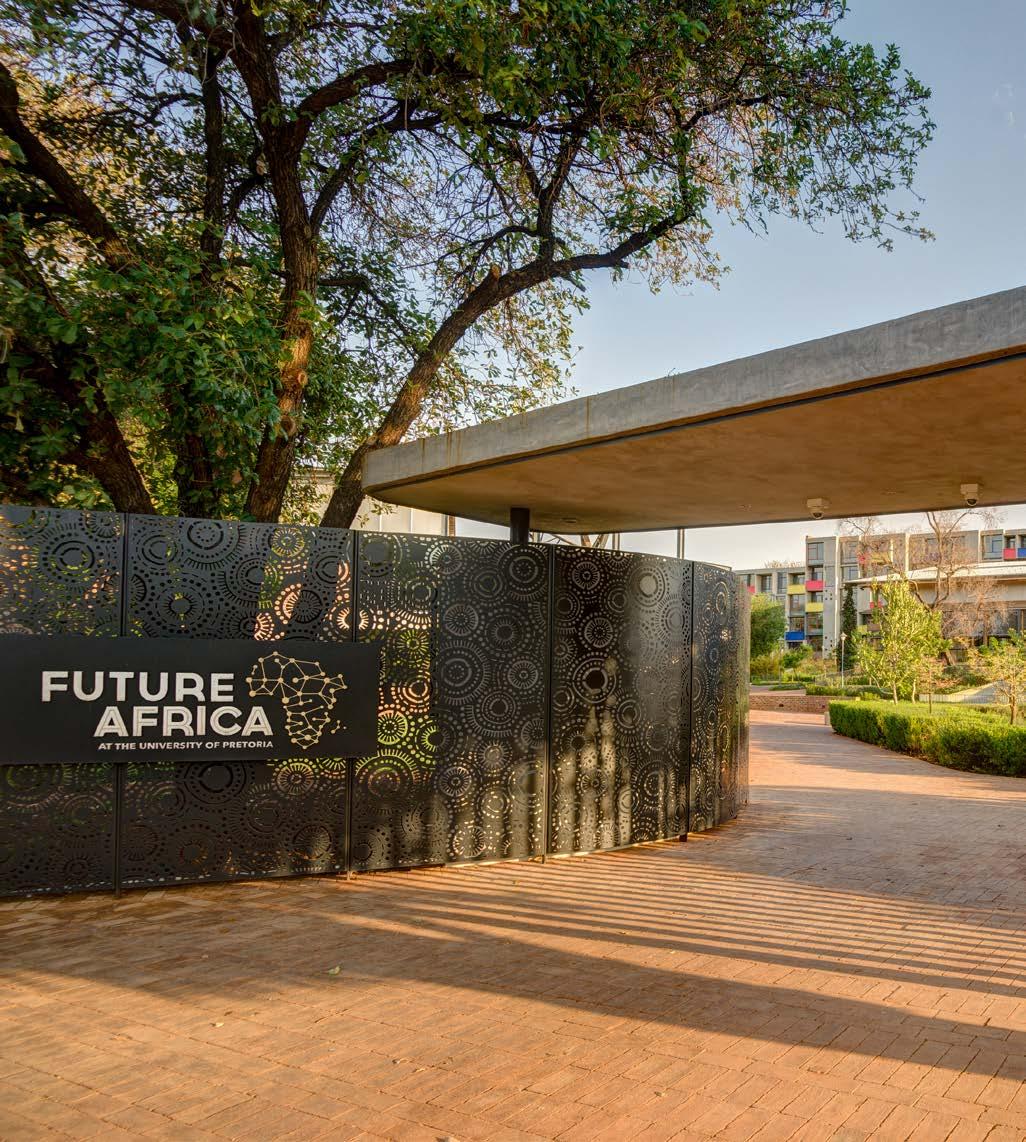
2022 Sustainable Development Report 82
Our stories
New National Biosecurity Hub launched
In the latter part of 2022, the national Departments of Higher Education, Science and Innovation, and Agriculture, Land Reform and Rural Development launched the in collaboration with the University of Pretoria. The hub, which forms part of the Department of Science and Innovation’s Agricultural Bio-economy Innovation Partnership Programme, will be coordinated by Innovation Africa @UP. It will facilitate collaborative efforts to support the prevention, reduction and management of crop and animal diseases and, by extension, issues related to food safety.
Plant and animal health, and their biosecurity are fundamental to all life and existence on Earth. In addition to its contributions towards life, health and well-being, the hub is anticipated to play a significant role in building resilience in the country’s economy. The hub will undertake monitoring and surveillance for early disease detection, and provide research and information services to the public and private sectors. Functioning as a central repository for biosecurity information, the hub will track and harness work done from multiple sources, curating it and enabling broadened access through digital technology. This will contribute to enhancing capability and responsiveness at subregional and regional levels, which is especially important given increased mobility of populations across the continent.
With strengthened strategies and standards for biosecurity, and meeting international trade sanitary and phytosanitary requirements, the hub anticipates higher confidence levels in South Africa’s trading partners, improved continuity in the agricultural economy, and enhanced food security.
Relevant SDGs:




Promoting biosecurity and training farmers in the Eastern Cape
In August 2022, members of the Forestry and Agricultural Biotechnology Institute conducted a series of workshops over four days in the Eastern Cape towns of Stutterheim and Mthatha. The initiative was a collaborative effort with Social Coding SA, a non-profit organisation that provides digital education to rural communities across South Africa.
In addition to promoting the new biosecurity platforms, which are being implemented to monitor agricultural pests and diseases across South Africa, participants were introduced to the Biosecurity Africa and Information Hub apps. The applications are designed to gather information on the spread of pests and diseases across South Africa, allowing central collation, analysis, visualisation and distribution of vital information from the national footprint, including areas that have previously been difficult to access.
The first three days of workshops were conducted at the Dohne Research Centre in Stutterheim, focusing on extension officers and researchers from across the five regions of the province. Training included providing guidance on sending disease and pest samples to the institute’s diagnostic clinic.
2022 Sustainable Development Report 83
“Plant and animal health, and their biosecurity are fundamental to all life and existence on Earth. In addition to its contributions towards life, health and well-being, the hub is anticipated to play a significant role in building resilience in the country’s economy.”
The final workshop was presented to the Ukhanyo Farmer Development (UFD) in Mthatha. This is a non-profit youth-owned, female-led commercial grain development entity formed by 36 young graduates from Grain SA’s development programme. The UFD aims to address challenges that hinder small-scale farmers from reaching commercial status in the Eastern Cape. It does so by offering mentorship to 2 600 farmers across all five high-potential maize-growing regions of the province, enabling them to increase yields and the quality of their produce.
Enhanced capability of local farmers with increased access to data from over 2 000 plots in the Eastern Cape will create a wealth of information and provide great insight on the spread of pests and diseases across South Africa. This is a significant step towards building a food-secure and economically prosperous grain industry.
Relevant SDGs:





Thought leadership, building capability and strengthening systems through One Health

In 2022, Future Africa One Health engaged actively in a wide range of initiatives and partnerships, demonstrating the University’s commitment to sustainable development and the improvement of health outcomes. The collective suite of efforts undertaken aim to address critical health challenges, promote transdisciplinary approaches, and improve the overall well-being of communities.
In recognition of thought leadership, Professor Wanda Markotter, who holds the Future Africa research Chair, is also co-Chair of the One Health High-Level Expert Panel that advises the quadripartite UN Food and Agriculture Organisation, the UN Environment Programme, the World Health Organisation and the World Organisation for Animal Health. The research Chair participated actively in the ; this included presenting a keynote address titled ‘Developing an International Focus on One Health’.
Under the umbrella of Capacitating One Health in Eastern and Southern Africa (COHESA), the University of Pretoria collaborates with the International Livestock Research Institute (ILRI), the Centre de Coopération Internationale en Recherche Agronomique pour le Développement (CIRAD), and the International Service for the Acquisition of Agri-biotech Applications (ISAAA). Specific COHESA activities across Kenya, Tanzania, Ethiopia, Uganda, Rwanda, Malawi, Zimbabwe, Zambia, Mozambique, Namibia and Botswana included conducting a desktop study on the One Health Future Workforce in Africa, and compiling an inventory of One Health courses.
2022 Sustainable Development Report 84
“The collective suite of efforts undertaken aim to address critical health challenges, promote transdisciplinary approaches, and improve the overall well-being of communities.”
In other significant activities, early in 2022, Future Africa hosted a UNICEF Symposium focusing on transdisciplinary approaches through the lens of youth. The symposium brought together experts and young individuals to discuss and address critical health challenges, and highlight the collaborative Youth Empowerment and Health Economic programme. It was explicitly noted that the UNICEF partnership with Future Africa enables programming at national level, as well as softening the boundaries between partner universities.
Relevant SDGs:



Establishing the Future Earth Africa Hub Leadership Centre
In 2022, the National Research Foundation selected Future Africa, alongside Rhodes University, to host the Future Earth Africa Hub Leadership Centre. The two core partners will be joined by three consortium partners: the University of Fort Hare, the University of the Witwatersrand and the University of Limpopo. The centre proposal was co-designed by the consortium, with input from the NRF and Future Earth.
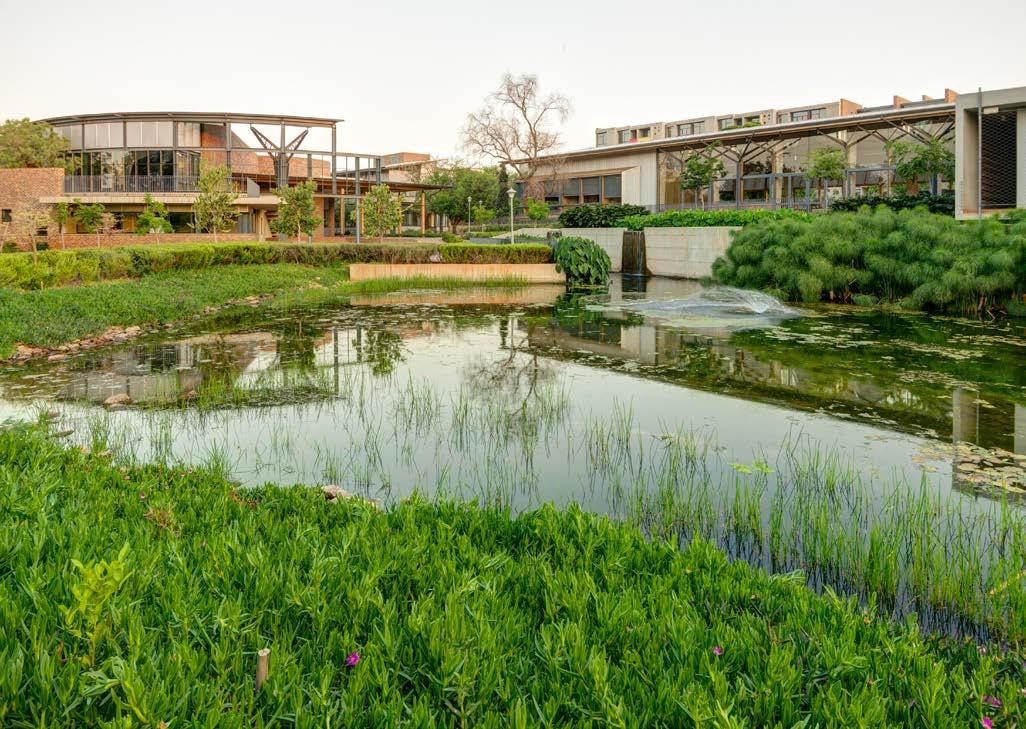
The hub will assume key functions as a Global Secretariat Hub for Future Earth. These include scoping and developing the sustainability science landscape in Africa, as well as co-designing priorities and setting the agenda for 2023 to 2026; strengthening the African sustainability science community and providing leadership on a shared vision; and undertaking monitoring and evaluation, with the facilitation of learning.
In playing a coordinating role, the centre will strive to ensure that the many and growing sustainability science initiatives and networks in Africa are complementary and designed to benefit the people who live in Africa. It will also work towards leveraging Future Earth’s international sustainability science networks for the benefit of African science. This is both an ambitious and critically necessary scope of activities for Africa (FE). It represents an effective model for other areas of science seeking to address critical issues in contemporary African societies.
It is anticipated that the initial 3-year period will be characterised by actionorientation, consultation and collaboration, and a predisposition for results that drive transformative societal change.
Related SDGs:
2022 Sustainable Development Report 85
SCENORAMA and the Visual Cultural Studies education programme at Javett-UP
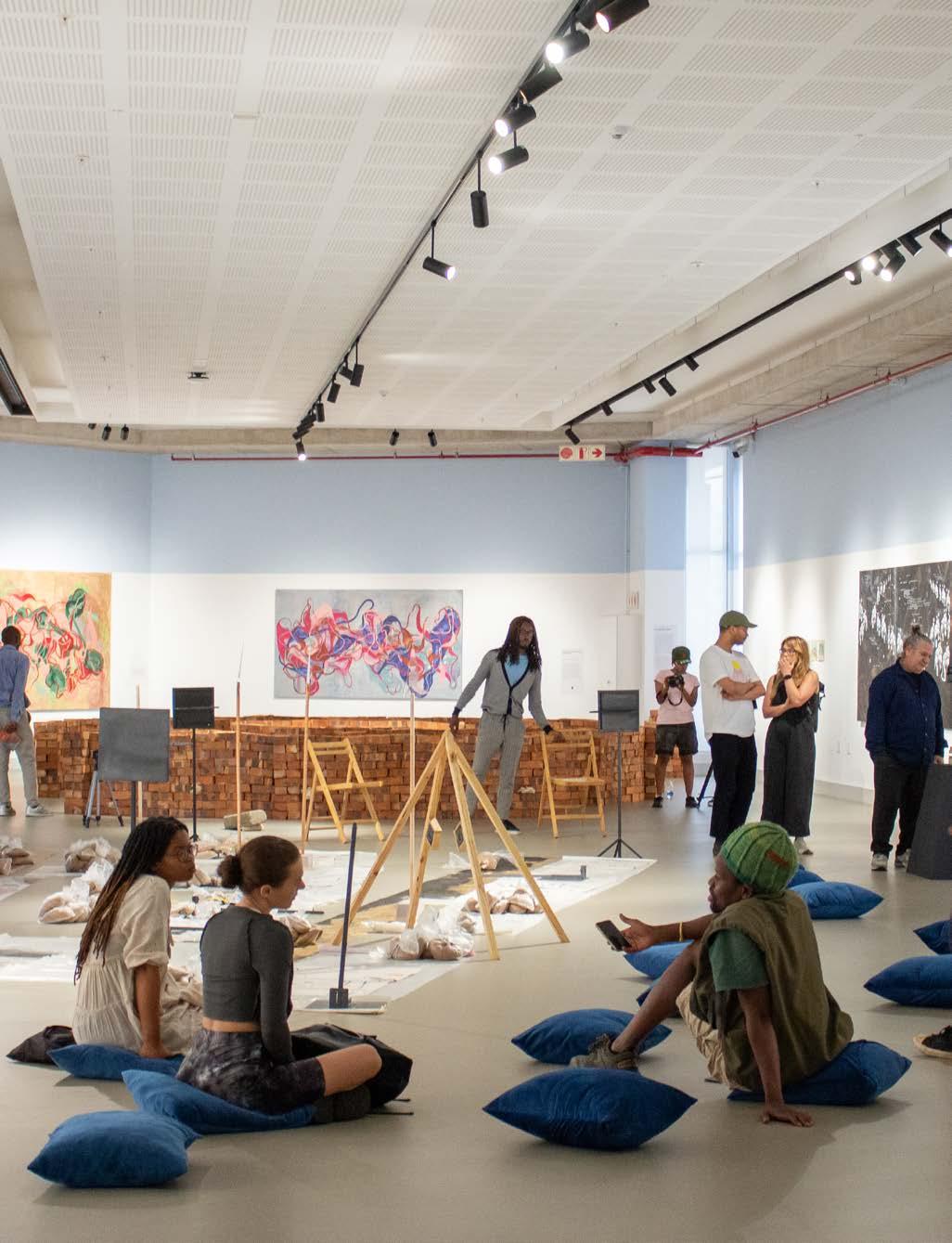
SCENORAMA is a new collaborative platform connected to pan-African experiences for artistic experimentation and new commissions working with artists and transdisciplinary researchers from different locales. SCENORAMA combines the words “panorama” and “scene” and presents a wide perspective of shared networks and experiences, beliefs and knowledge systems across different localities in Africa and the diaspora. Artists included in this version of SCENORAMA create new ways of thinking on the accessibility of individual and collective experiences. With research oscillating between historiographical impulses, systematic formation and transformation, multiple perspectives of the present emerge through engaging with our experiences and perceptions of historical time. The SCENORAMA exhibition ran from May 2022 to March 2023.
Based on SCENORAMA’s success in 2022, the Visual Culture Studies Department in the Faculty of Humanities incorporated the project, themed ‘Visual and Virtual Space’ into the third-year curriculum. As part of their coursework, students were required to explore and analyse an exhibition that provided institutional critique by moving away from the dominance of Western perspectives, and embracing a more inclusive and democratic curatorial experience.
Approximately 91 third-year students participated in this exploration of SCENORAMA over four days, guided by the Javett-UP team and involving conversational tours. During these tours, students engaged deeply in the works of the artists and the themes they addressed. They were encouraged to consider the various curatorial approaches and display methods employed, in order to choreograph how their bodies and minds interacted with the exhibition space. This prompted critical thinking about the ways in which curatorial choices can shape and influence participants’ experiences.
Relevant SDG:

2022 Sustainable Development Report 86
The Mokete Collective Cooking and Lunch Session
The Mokete Collective Cooking and Lunch Session was facilitated by local chef Charles Montshiwa, alongside the Preempt Group, recipients of the 2021/22 Visionary Award, and the Javett-UP team. It was part of the Buffer Zones exhibition, and represents a fusion of the Preempt Group’s exploration of Mapungubwe, and Javett-UP’s ongoing research towards food security.
The title of the Buffer Zones exhibition borrows from a newly created film-based experience which investigates the fabric of the landscape around Mapungubwe, offering multidirectional signposts of an ecosystem in which human and non-human species cross paths over time. The landscape witnessed intergenerational stories with the rise and fall of an empire, the illegal and colonial settlement during the gold rush, the Great Depression and several violent conflicts. Through an ecosystem lens, the exhibition explores the cycles of destruction and rehabilitation. Javett-UP’s research that is related to food security focuses on indigenous food crops and edible plants growing in this region.
The lunch brought together nutrition and an understanding of the ancient civilisation of Mapungubwe, allowing for imaginative culinary ideas and interactions to emerge. The session was accompanied by a tour of the Mapungubwe Gold Collection exhibition and the Buffer Zones installation.
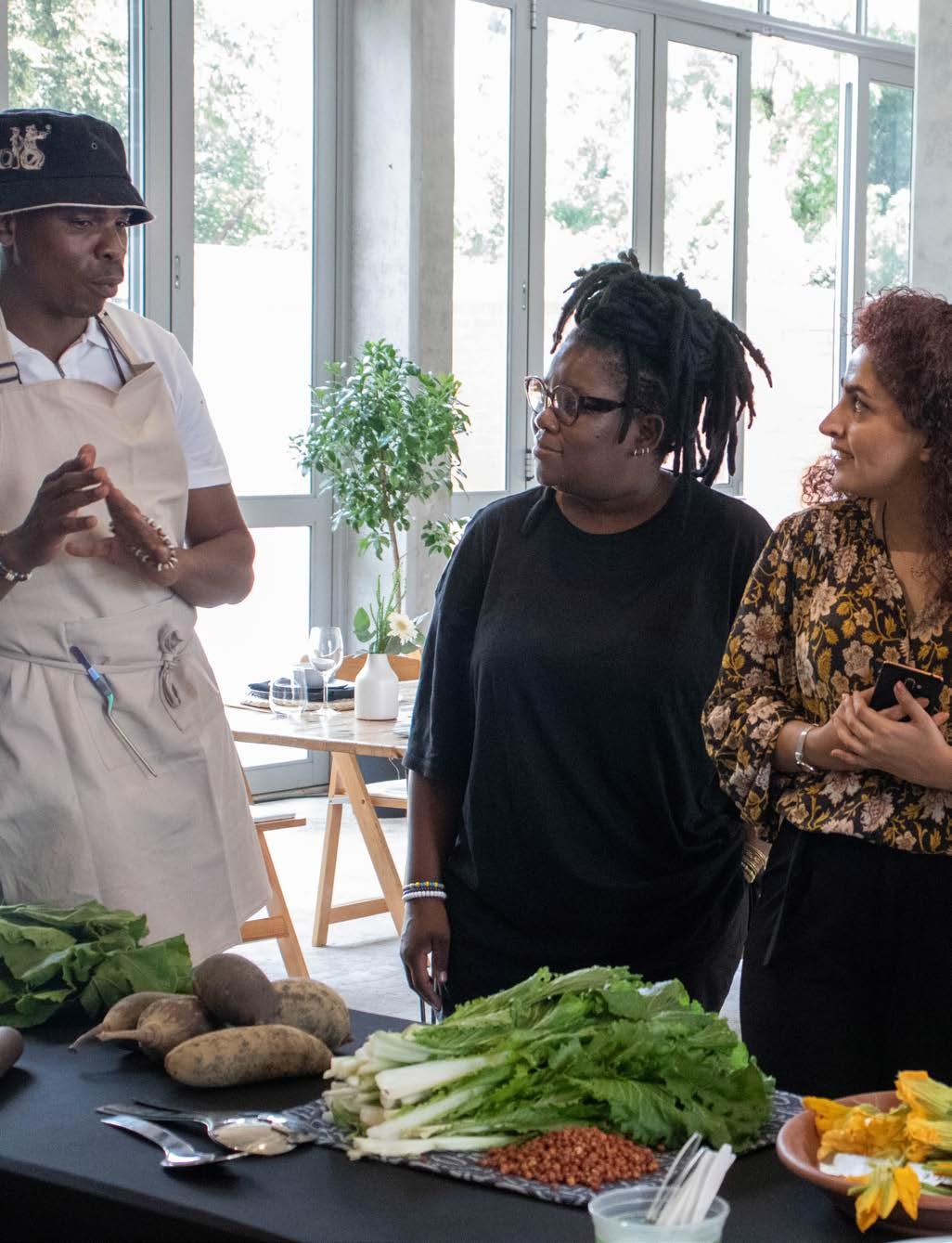
Relevant SDGs:



2022 Sustainable Development Report 87
COLLABORATION AND PARTNERING
The concepts of collaboration and partnering are central to our strategic intent. They are anchored in our belief that being responsive to complex societal needs, and addressing the grand challenges facing humanity cannot be achieved by the traditional siloed university acting in isolation. As individual institutions we leverage our strengths and capabilities to demonstrate responsiveness to the contexts in which we are embedded, and as a collective, we value and embrace collaboration as a partnership of equals. Within this partnership of equals we each bring our different perspectives, talents and capabilities to bear, to co-create solutions and amplify impact beyond the sum of individual contributions.
Such a proposition is not philanthropic, nor is it a “nice to have”. We believe that competition between and across universities must change at a rapid pace. Indeed, the university of the future will be one that is in touch with societal needs and has mastered the ability to collaborate within itself and across its boundaries. It will be a university that is defined by its broad, inclusive and futuristic outlook, being connected to peers and other stakeholders alike for mutual benefit and mutual empowerment –inspired and aspiring to be in concert with others as drivers and agents of change.
Step change, relevant and truly innovative solutions will flow from the tapping and utilisation of a broader pool of talent, in multiplicative ways and with multiple streams of value.
Our stories
While our engagement and collaborations range from those at individual levels through unit-, faculty- and institutional-level collaborations, our focus in this report is at institutional or faculty level.
In the section Stakeholder Engagement for Mutual Benefit, we highlighted key networks within which the University participates. These have also been described in more detail in the . Additionally, in the section Driving Sustainability Through our Core Functions, many instances of collaboration and partnering were outlined, reflecting our integrated approach. The following stories bring the concept of partnership into sharper focus, but are by no means a comprehensive description of our partnering activities.
Our Africa Global University Project continues to drive strategic partnerships
At an institutional level, our African Global University Project (AGUP) guides the intent and shape of our partnering. Work continues to identify potential core strategic partners, as well as to optimise balance in the geographic distribution of our partner footprint.

2022 Sustainable Development Report 88
Partners are made up of universities or entities in the higher education sector with whom we share memorandums of intent, institutional agreements or faculty agreements. In 2022, 202 partnerships were active, representing a net increase of eight partnerships compared to 196 in the previous year. Notwithstanding the net increase, the overall mix of partnerships remains consistent year-on-year.
UP and Cornell University continue to strengthen existing relationships
Following the signing of an institutional agreement between UP and Cornell University in 2021, active efforts continued through 2022 to strengthen and extend collaborative work. The agreement affirms and builds on a longstanding history of collaboration between the two institutions, particularly between the Faculties of Veterinary Science, Natural and Agricultural Sciences, and Law.
Grounded in pedagogical innovation and transdisciplinary research, the agreement seeks to facilitate international academic exchange, further develop academic and scientific relationships, and provide support for collaborative research.
2022 active international partners
As part of the agreement, a joint framework for institutional collaboration was developed. The Food-Energy-Environment nexus was identified as a thematic focus of the collaboration, with particular emphasis on sustainable food systems, smart communities and global One Health.
To translate the strategic intent into action and accelerate collaboration, a high-level delegation from UP visited Cornell University during the year. Long-term strategic goals were developed including the delivery of a jointly recognised master’s degree, student exchange programmes, postdoctoral initiatives and continued funding for high-impact research projects.
Africa Asia Europe Middle East North America Oceania South America
“The university of the future will be one that is in touch with societal needs and has mastered the ability to collaborate within itself and across its boundaries.”
2022 Sustainable Development Report 89
New partnerships in the NAS Faculty
Three new partnerships, among others, were established by staff in the Faculty of Natural and Agricultural Sciences in collaboration with colleagues from other faculties and UP entities.
The four-year programme Capacitating One Health in Eastern and Southern Africa was introduced in the section Transdisciplinary Platforms. It is a consortium of highly regarded African-based research organisations, funded by the European Union’s OACPS Research and Innovation Programme. The initiative focuses on the rapid uptake, adoption and adaptation of solutions in the One Health space. Participating UP entities include the Department of Veterinary Tropical Diseases, the Centre for Viral Zoonoses, Future Africa and the African Centre for Gene Technologies.
A research collaboration between the Department of Animal Science and New Zealand’s AgResearch Limited is funded by the New Zealand government, in support of the Global Research Alliance on Agricultural Greenhouse Gases (GHG). AgResearch undertakes science and technology projects for New Zealand’s agricultural sector. The initiative will monitor the mix of gas emissions from individual animals, and aims to strengthen national GHG inventories for livestock, continuously improve livestock inventories, and support live-stock based emission mitigation.
The Department of Plant and Soil Sciences is participating in the recently launched One Food programme in South Africa, funded by the British government. The South African initiative is a collaboration between South Africa’s Department of Science and Innovation, the Council for Scientific and Industrial Research (CSIR), and the UK government’s Centre for Environment, Fisheries and Aquaculture Science (CEFAS). The UP team will be focusing on the circular food systems of small-scale aquaculture, waste management, and animal farming and crop production for safe and nutritious fresh produce.
FSNet-Africa: Transforming food through partnerships
The Food Systems Research Network for Africa (FSNet-Africa) is a Global Challenges Research Fund (GCRF) Research Excellence project. It is funded under a partnership between the United Kingdom Research and Innovation (UKRI) and the African Research Universities Alliance (ARUA). The University of Pretoria leads the initiative in partnership with the University of Leeds (UoL) and the Food, Agriculture and Natural Resources Policy Analysis Network (FANRPAN).
FSNet-Africa aims to strengthen the capacity of researchers to conduct food systems research, and to translate evidence into implementable, high-impact solutions. Twenty fellows have been recruited from 10 African academic institutions in six countries (Ghana, Kenya, Malawi, South Africa, Tanzania and Zambia) to participate in a two-year fellowship. The researchers each collaborate with a mentor from UoL, one from an African academic partner institution, and one researcher from UP in implementing an interdisciplinary project related to food systems.
Each of the 20 teams has up to five different disciplines represented within the team. The interdisciplinary nature of the teams helps researchers redefine problems outside of normal boundaries, and envision solutions that recognise the complexity associated with food systems. The suite of projects tackle at least 14 of the 17 SDGs.
Throughout the fellowship, researchers interact with various food systems stakeholders to ensure that their projects are relevant, and that their research results inform both policy and practice.
2022 Sustainable Development Report 90
“Step change, relevant and truly innovative solutions will flow from the tapping and utilisation of a broader pool of talent, in multiplicative ways and with multiple streams of value.”
CONCLUDING THE CONVERSATION
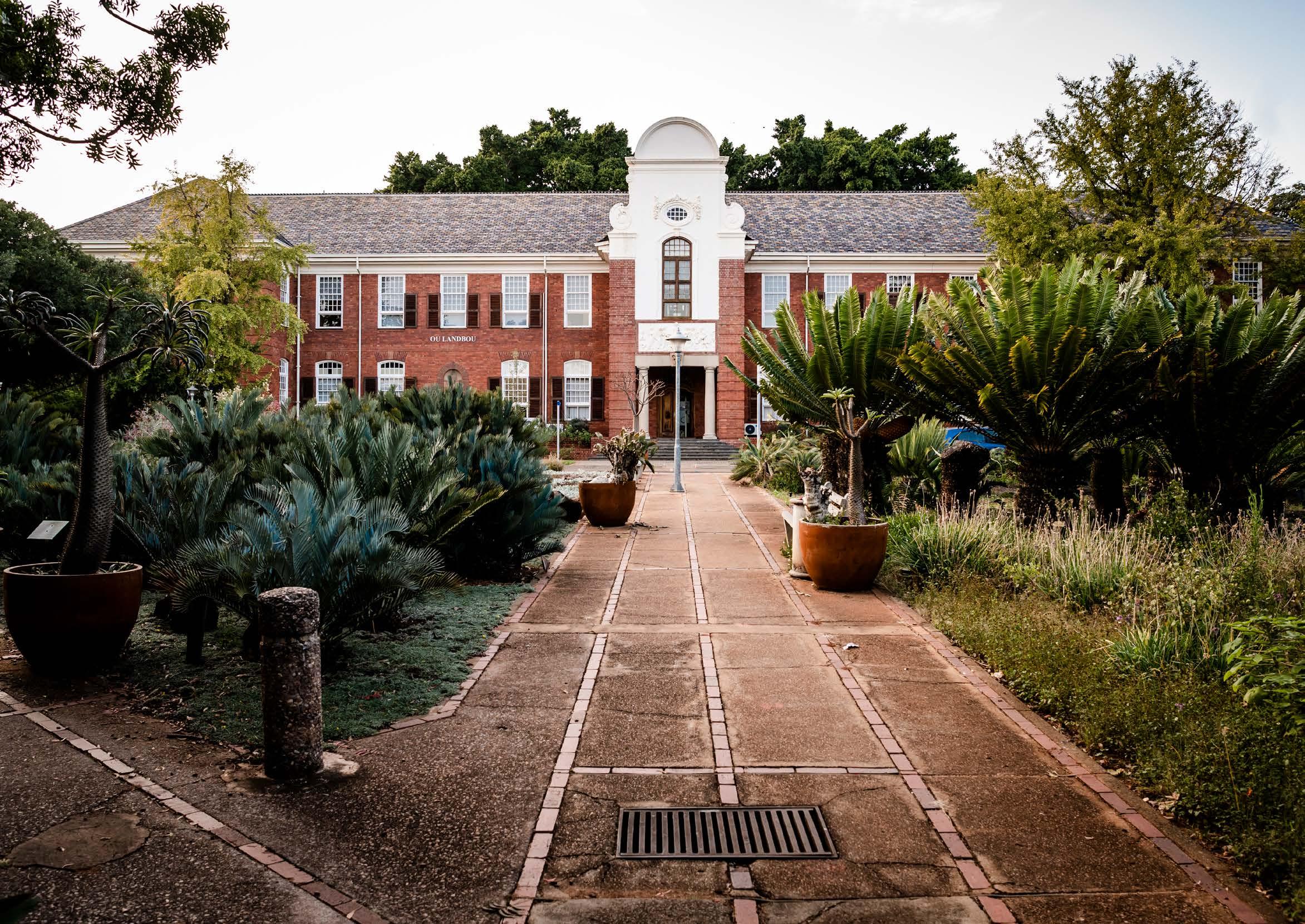
CONSOLIDATED ALIGNMENT WITH THE SDG s
In this report, while our primary focus is on our holistic and integrated approach to sustainable development, we have demonstrated broad coverage of the SDGs through operational sustainability, and driving sustainable development through our core functions. Adopting a wide-angle view of sustainable development and connecting that to our role as an institution of higher education, is a necessary precursor for meaningful contribution towards, and accelerated achievement of the SDGs.
This is validated by our research outputs per SDG over time, as presented in the charts below.
Research outputs per SDG (scholarly) SDG 1: No Poverty 90 80 70 60 50 40 30 20 10 0 2018 2019 2020 2021 2022 SDG 2: Zero Hunger 200 180 160 140 120 100 80 60 40 20 0 2018 2019 2020 2021 2022 2022 Sustainable Development Report 92
SDG 3: Good Health and Well-being 800 700 600 500 400 300 200 100 0 2018 2019 2020 2021 2022 SDG 4: Quality Education 140 120 100 80 60 40 20 0 2018 2019 2020 2021 2022 SDG 5: Gender Inequality 120 100 80 60 40 20 0 2018 2019 2020 2021 2022 SDG 6: Clean Water and Sanitation 120 100 80 60 40 20 0 2018 2019 2020 2021 2022 2022 Sustainable Development Report 93
7: Affordable and Clean Energy 160 140 120 100 80 60 40 20 0 2018 2019 2020 2021 2022
8: Decent Work and Economic Growth 160 140 120 100 80 60 40 20 0 2018 2019 2020 2021 2022
9: Industry, Innovation and Infrastructure 160 140 120 100 80 60 40 20 0 2018 2019 2020 2021 2022
10: Reduced Inequality 160 140 120 100 80 60 40 20 0 2018 2019 2020 2021 2022 2022 Sustainable Development Report 94
SDG
SDG
SDG
SDG
SDG 11: Sustainable Cities and Communities 120 100 80 60 40 20 0 2018 2019 2020 2021 2022 SDG 12: Responsible Consumption and Production 100 80 60 40 20 0 2018 2019 2020 2021 2022 SDG 13: Climate Action 180 160 140 120 100 80 60 40 20 0 2018 2019 2020 2021 2022 SDG 14: Life Below Water 35 30 25 20 15 10 5 0 2018 2019 2020 2021 2022 2022 Sustainable Development Report 95
Beyond comprehensive coverage, we continue to demonstrate progressively increasing research productivity across the SDGs. Using the AI and machine learning tools being applied in the EBIT Faculty, and extending their application across the institution, we anticipate greater accuracy in identifying SDG scholarly outputs, with the ability to link this to department levels. This will allow for a more targeted approach to SDG-related research.
We will continue working towards increasing the relevance of our research, so that its impact is seen in improving the lives of the people of South Africa, Africa and the world.

SDG 16: Peace, Justice and Strong Institutions 160 140 120 100 80 60 40 20 0 2018 2019 2020 2021 2022 SDG 15: Life on Land 200 150 100 50 0 2018 2019 2020 2021 2022 2022 Sustainable Development Report 96
Our performance in relation to the Times Higher Education Impact Rankings

The ways in which we measure success and impact, and the basket of metrics we measure ourselves against in assessing our societal impact have significant limitations. At best, indicators such as research outputs and productivity, the quality of the journals that we publish in, and the number of citations we register describe our impact within a closed academic ecosystem. In this context, they should be a means to an end, and not an end in themselves. In isolation, they are weak surrogates for the impact we should be demonstrating at macro-societal levels, such as addressing poverty and inequality, and those at micro-societal levels where we enhance the lives of people and the communities that they live in.
Similarly, the various ranking systems have imperfections, but also serve a purpose as a means to an end, in providing an assessment of progress over time. In this context, our performances in the Times Higher Education Impact Rankings have demonstrated clear progress from an external viewpoint as we continue our sustainability journey.
Impact
year 2020 2021 2022 2023 Data submission year 2019 2020 2021 2022 Global ranking 101 - 200 201 - 300 101 - 200 69
Rankings report
SDG 2023 rank 5 14 8 4 9 91 10 76 15 81 16 97 17 92 2022 Sustainable Development Report 97
In the 2023 Impact Rankings, UP ranked in the top 100 for seven SDGs.
A C K N O W L E D G E M E N T S
The UP 2022 Sustainable Development Report reflects the work, talents and dedication of UP’s academic, professional service, administrative staff and students who collectively make up the UP community. In the absence of their efforts and demonstrated excellence, this report would not have been possible.
We acknowledge the UP Executive Team for its authentic commitment to sustainable development and for embedding it into the University’s strategy and culture. We are also grateful for the support provided in preparing the report.
Sustainable Development Report team
Brian Chicksen Executive Office, UP Sithembinkosi Tlale
Department of Institutional Advancement, UP

Carina Young Media Chef
Carissa Botha Media Chef
Contact Brian Chicksen 2022 Sustainable Development Report 98

University of Pretoria Lynnwood Rd, Hatfield, Pretoria Private Bag X20, Hatfield, 0028 South Africa Tel +27 (0)12 420 3111 Fax +27 (0)12 420 4555




















 Academic
Prof Sunil Maharaj
Academic
Prof Sunil Maharaj


































































































